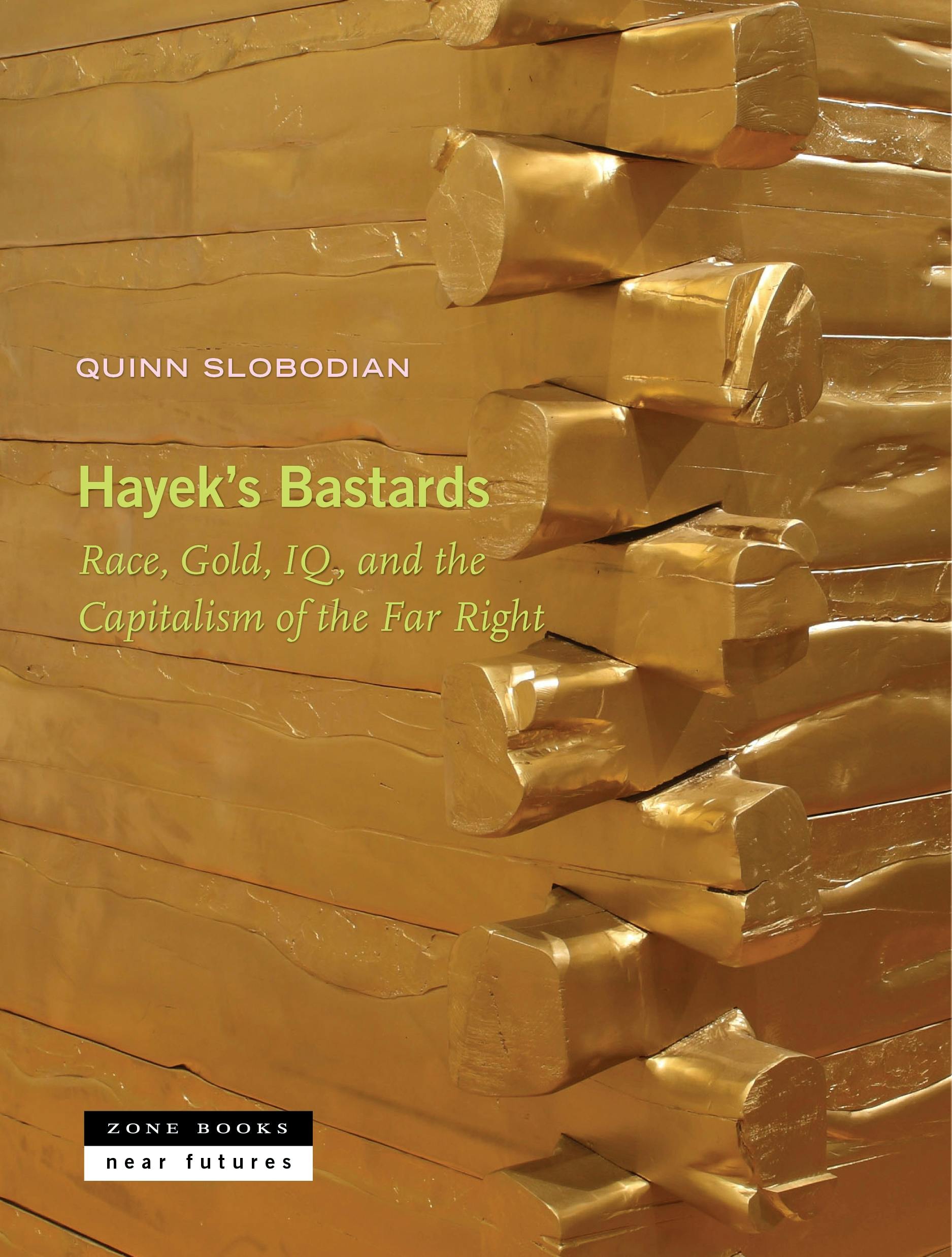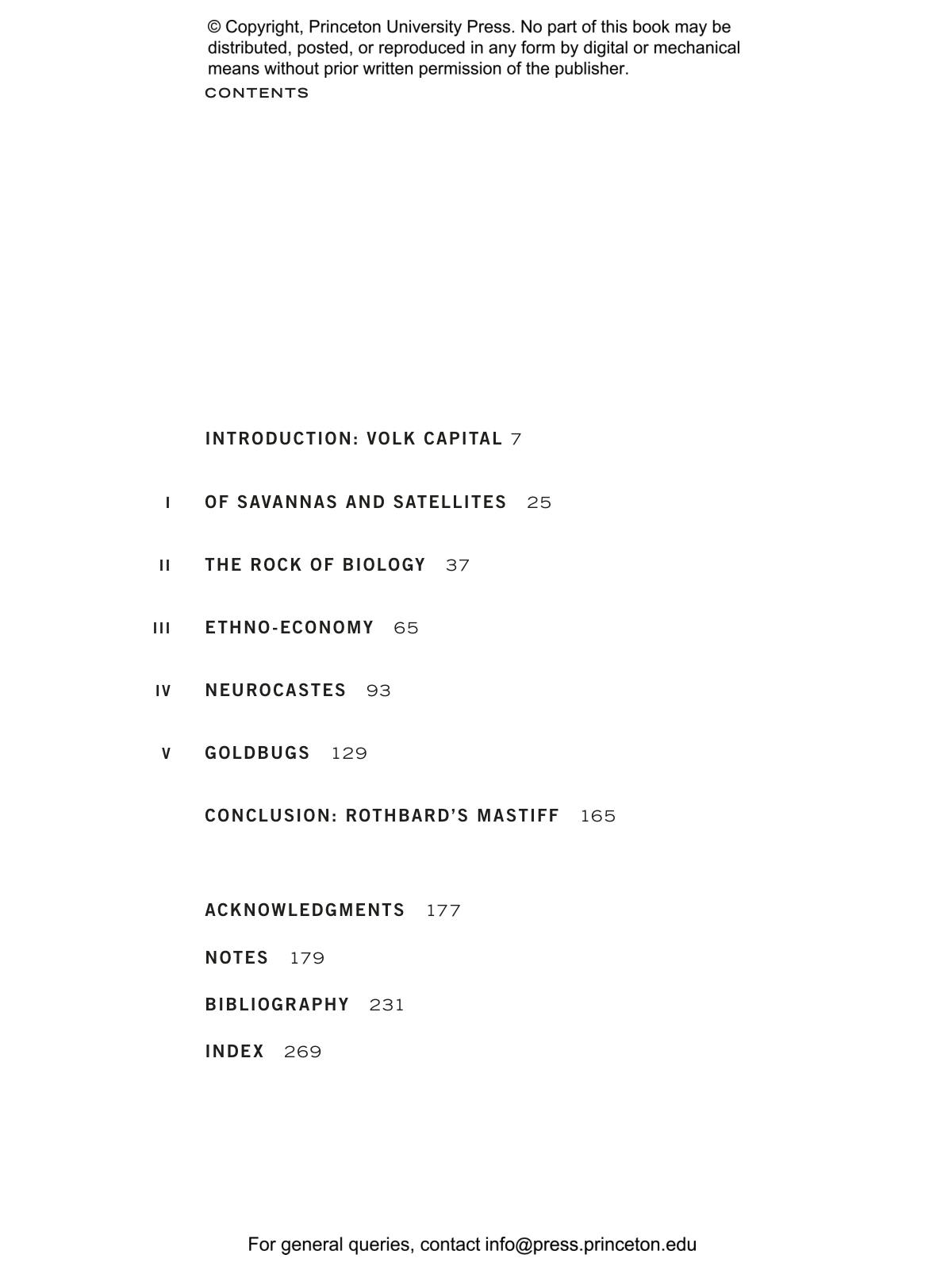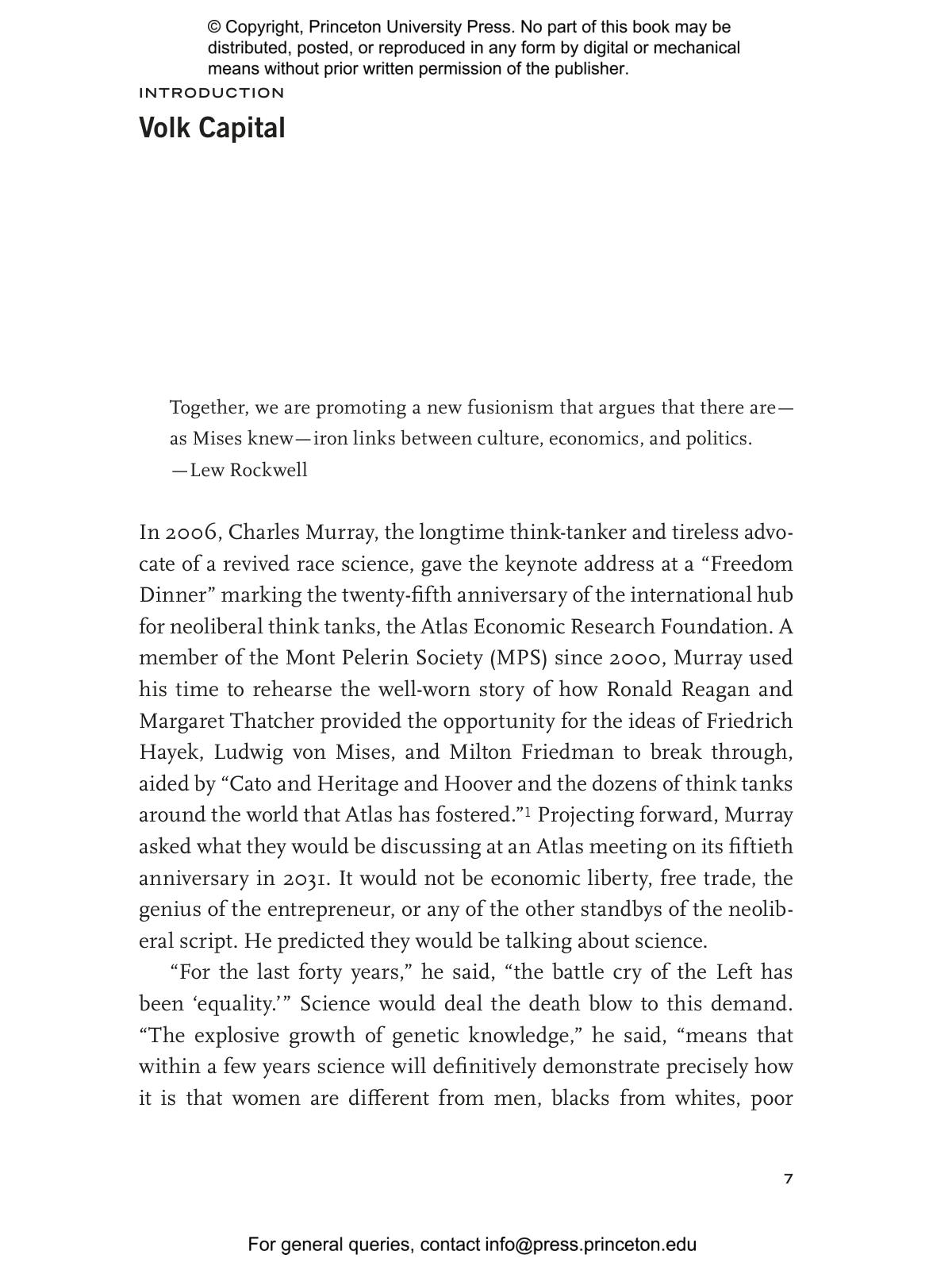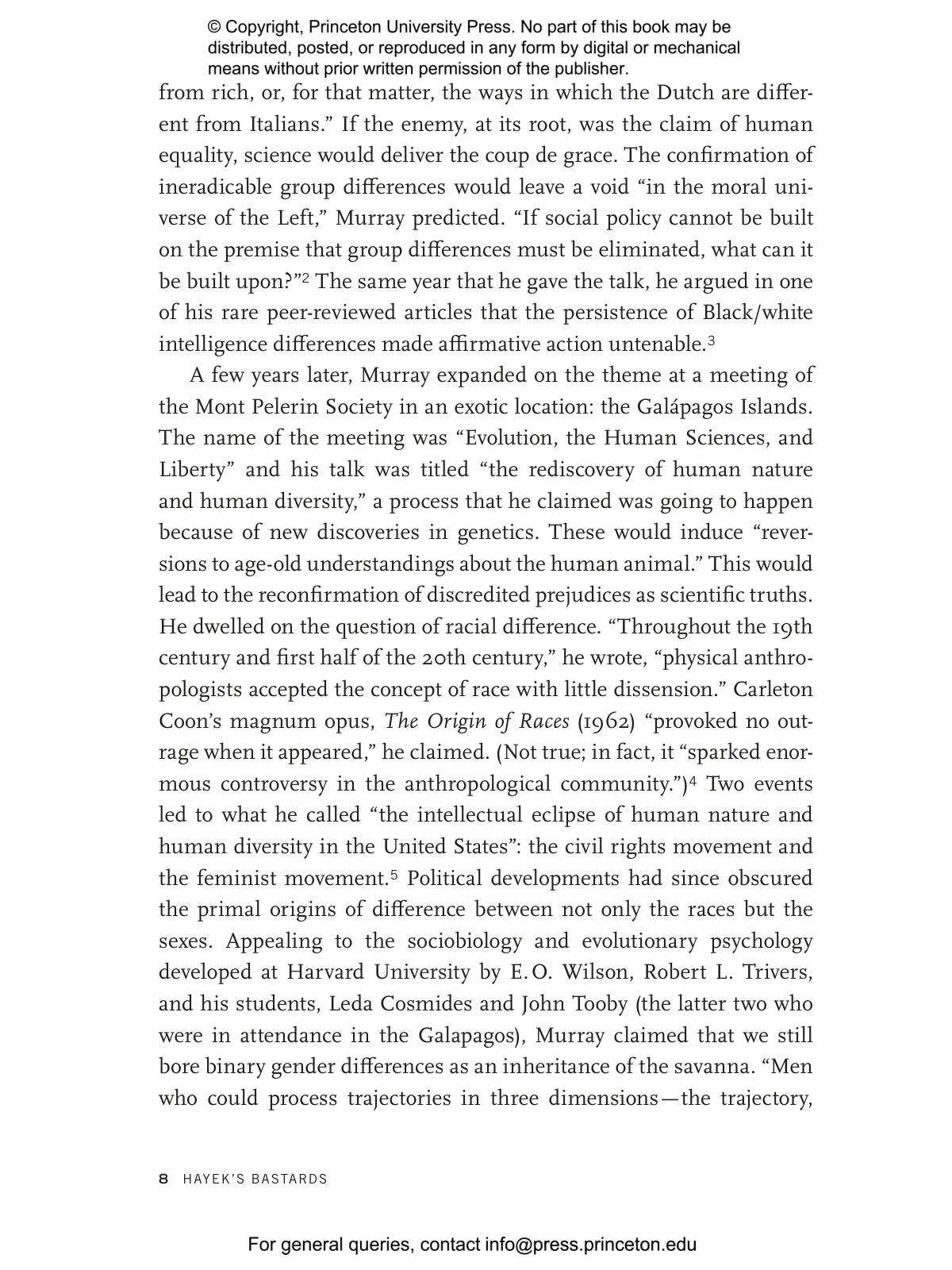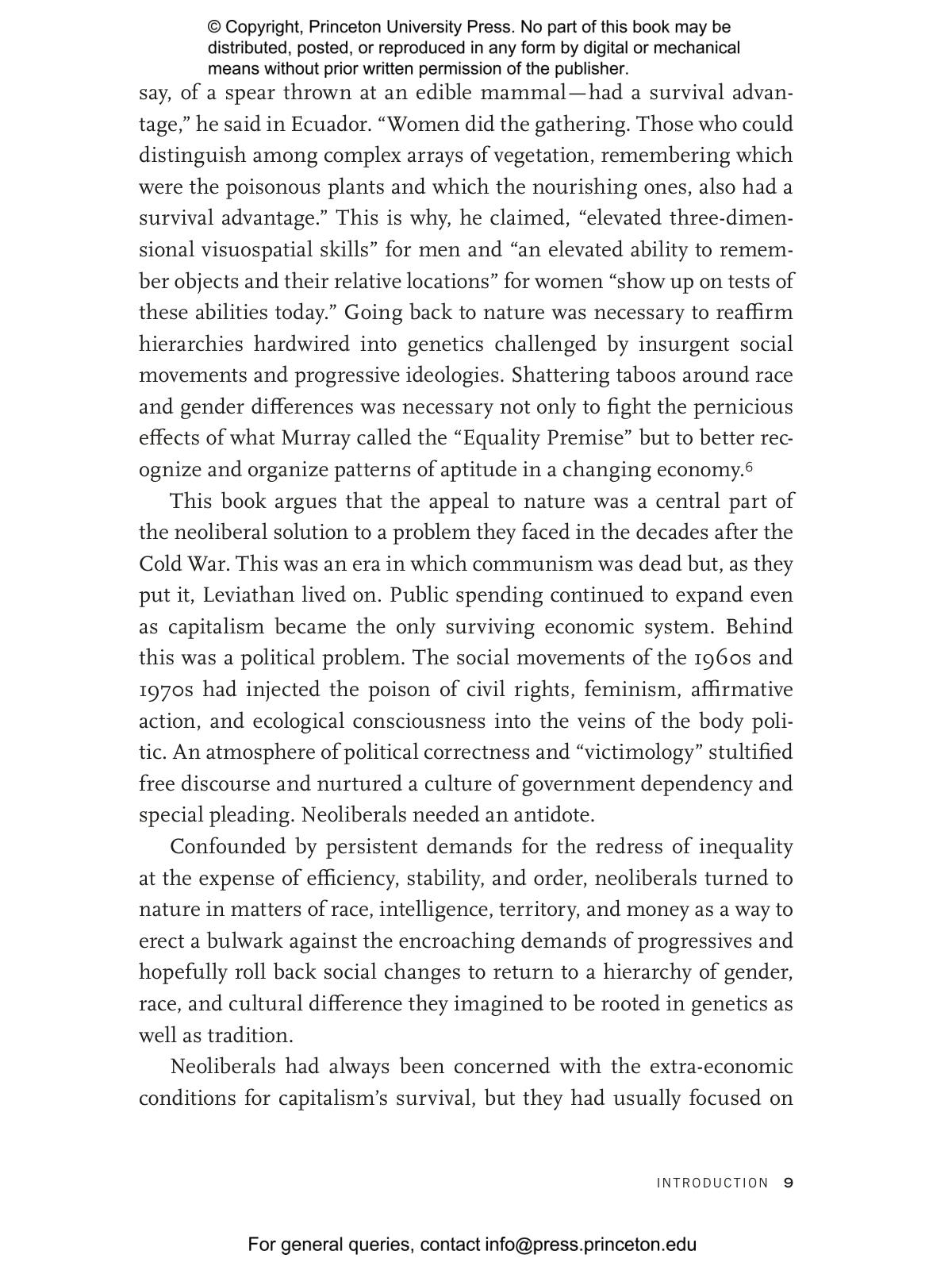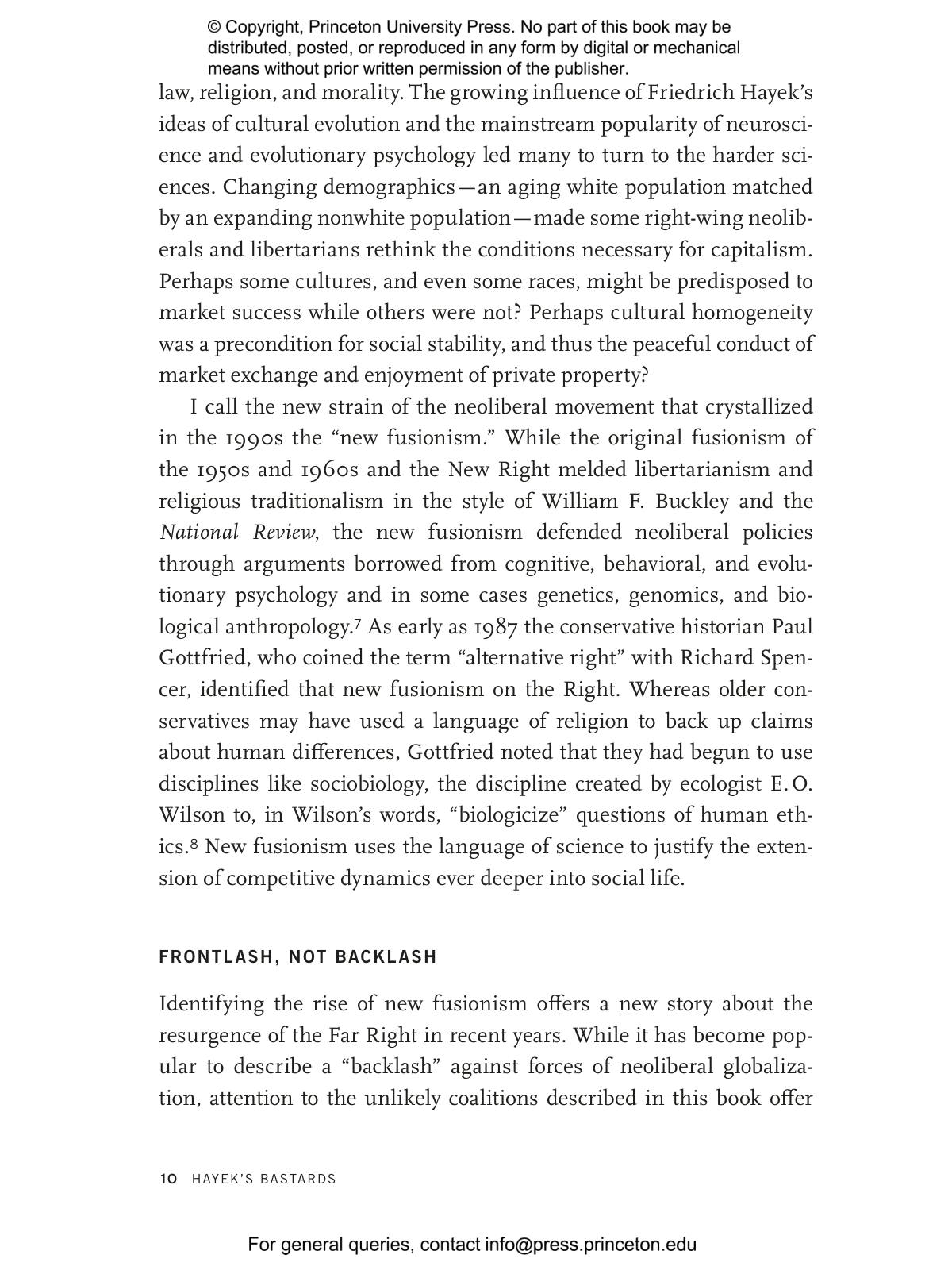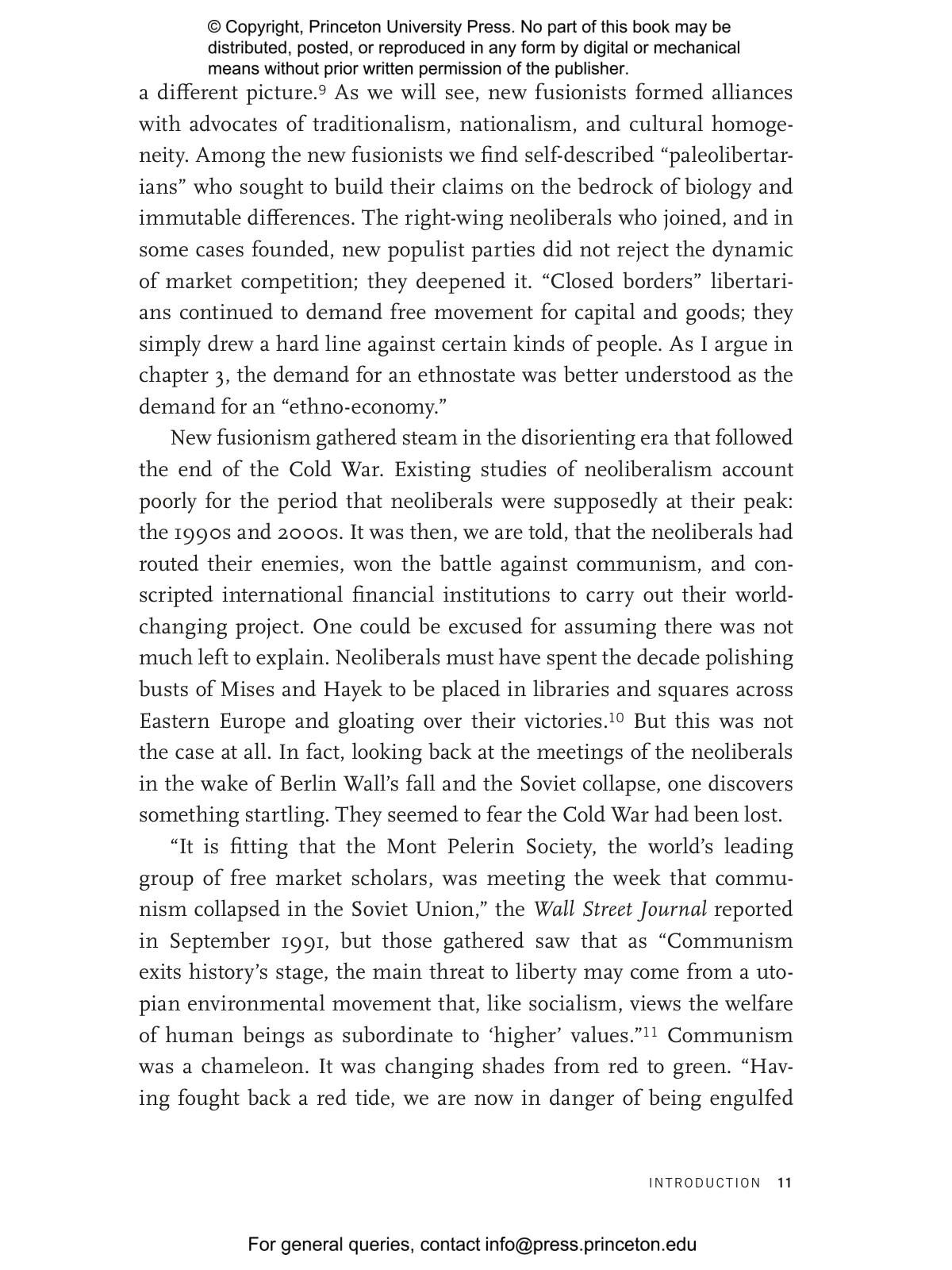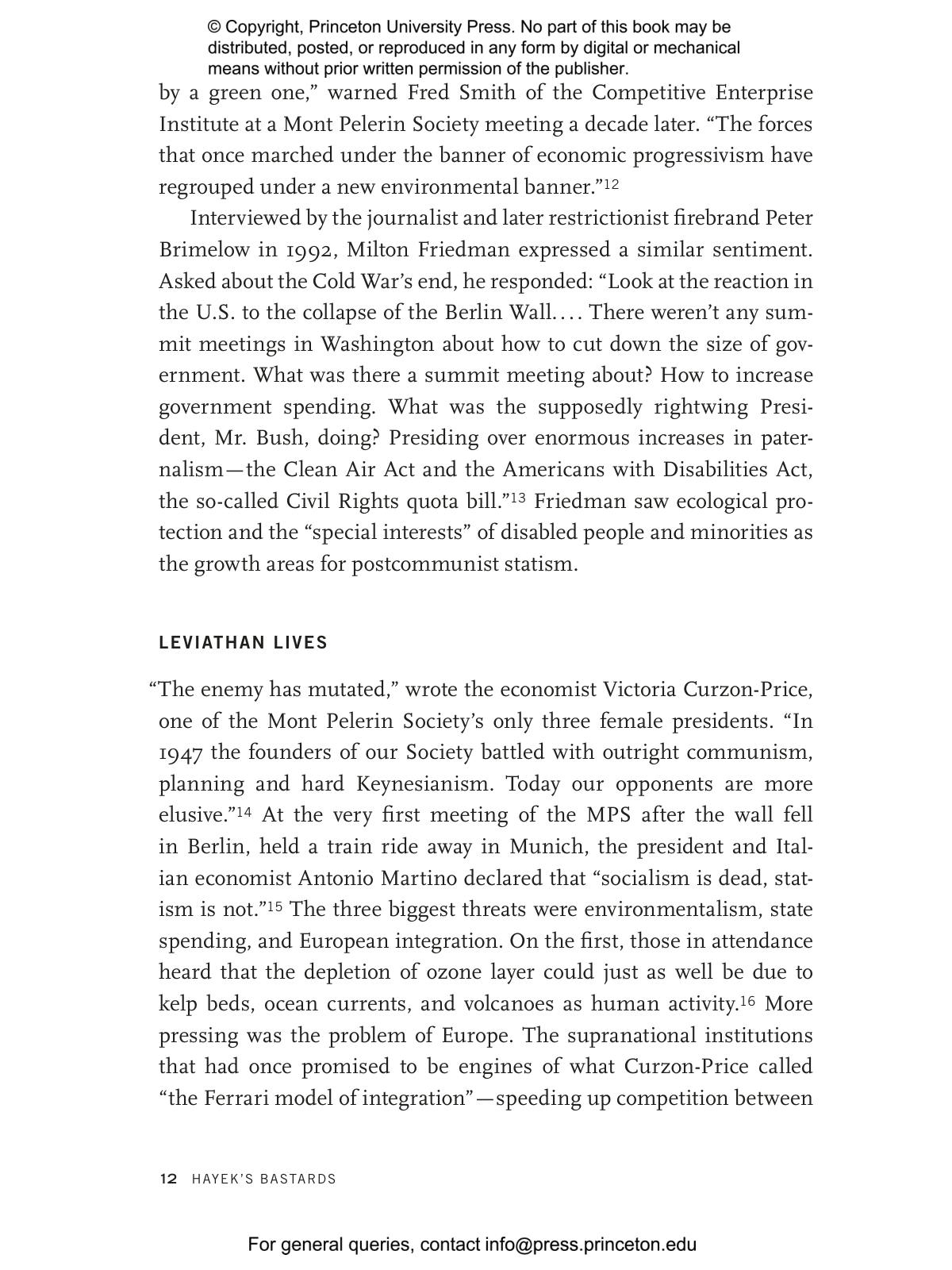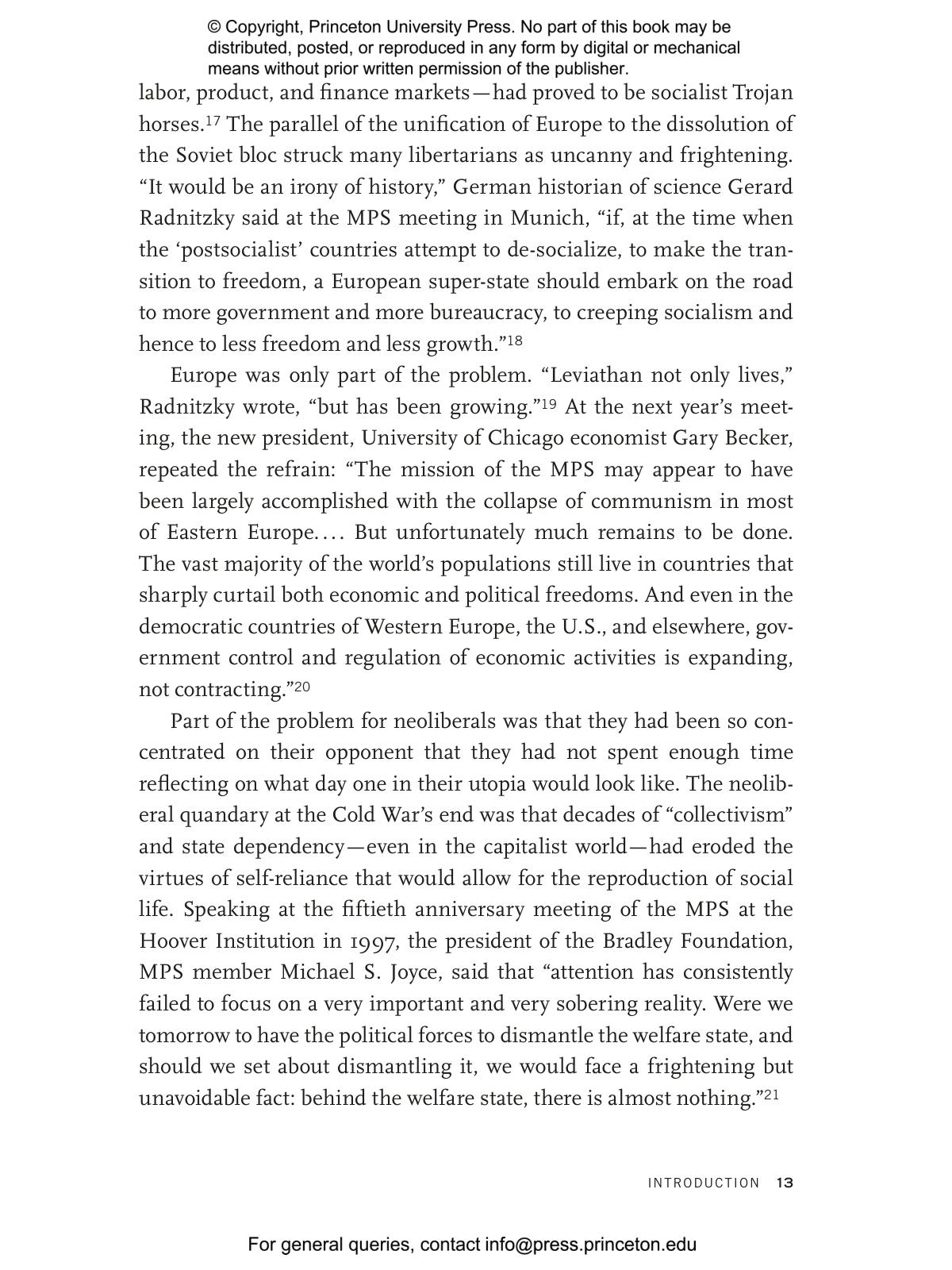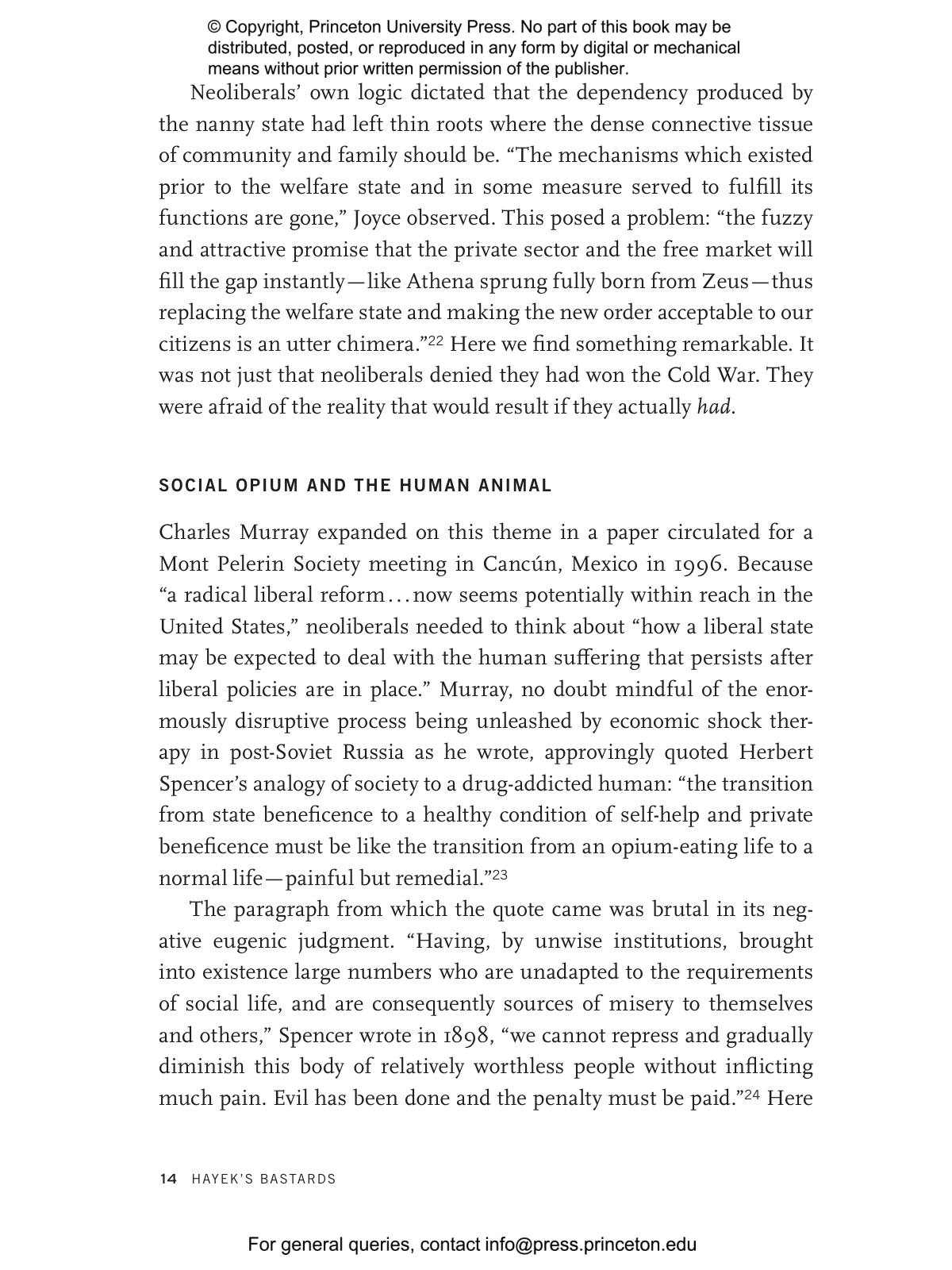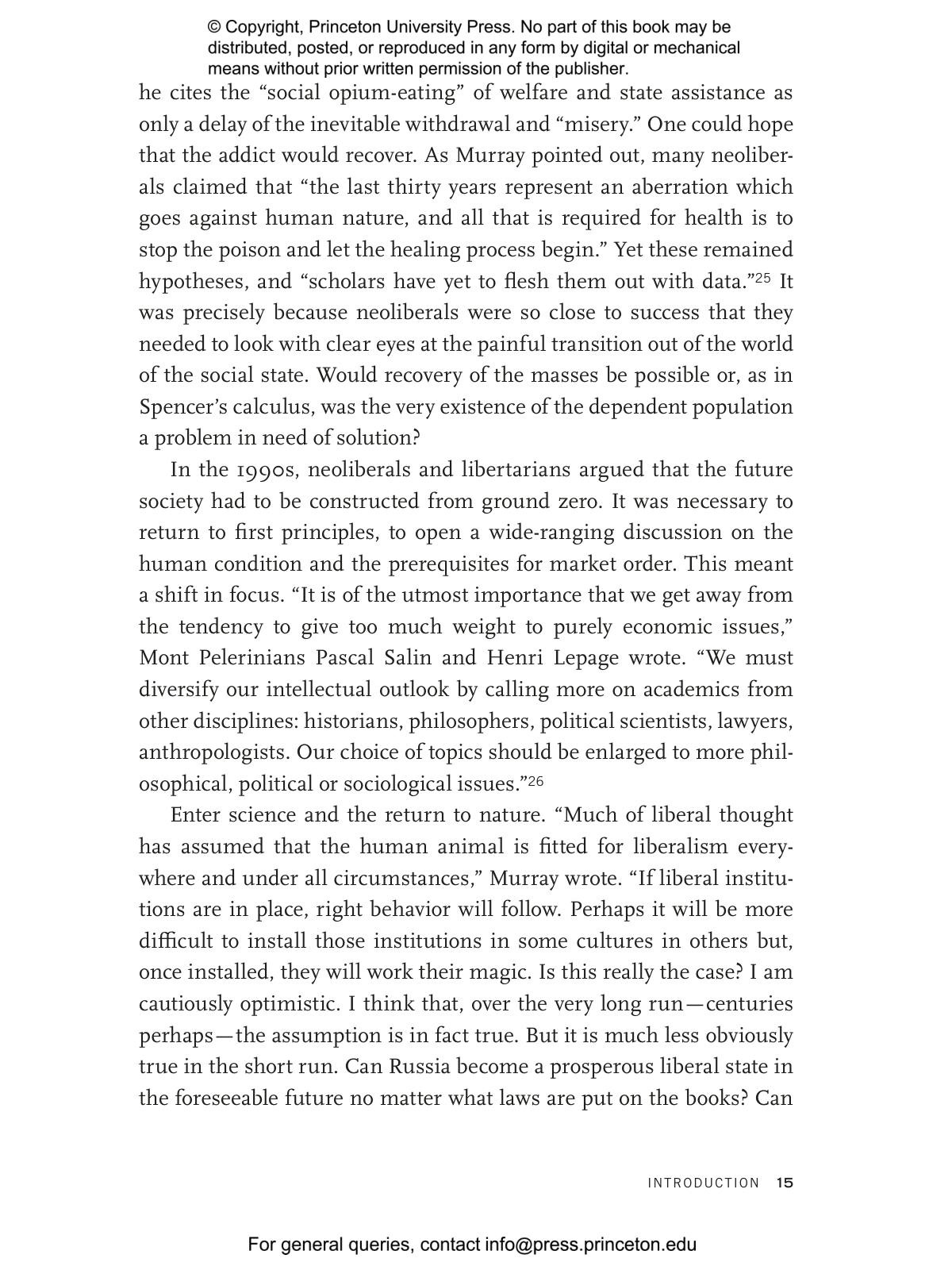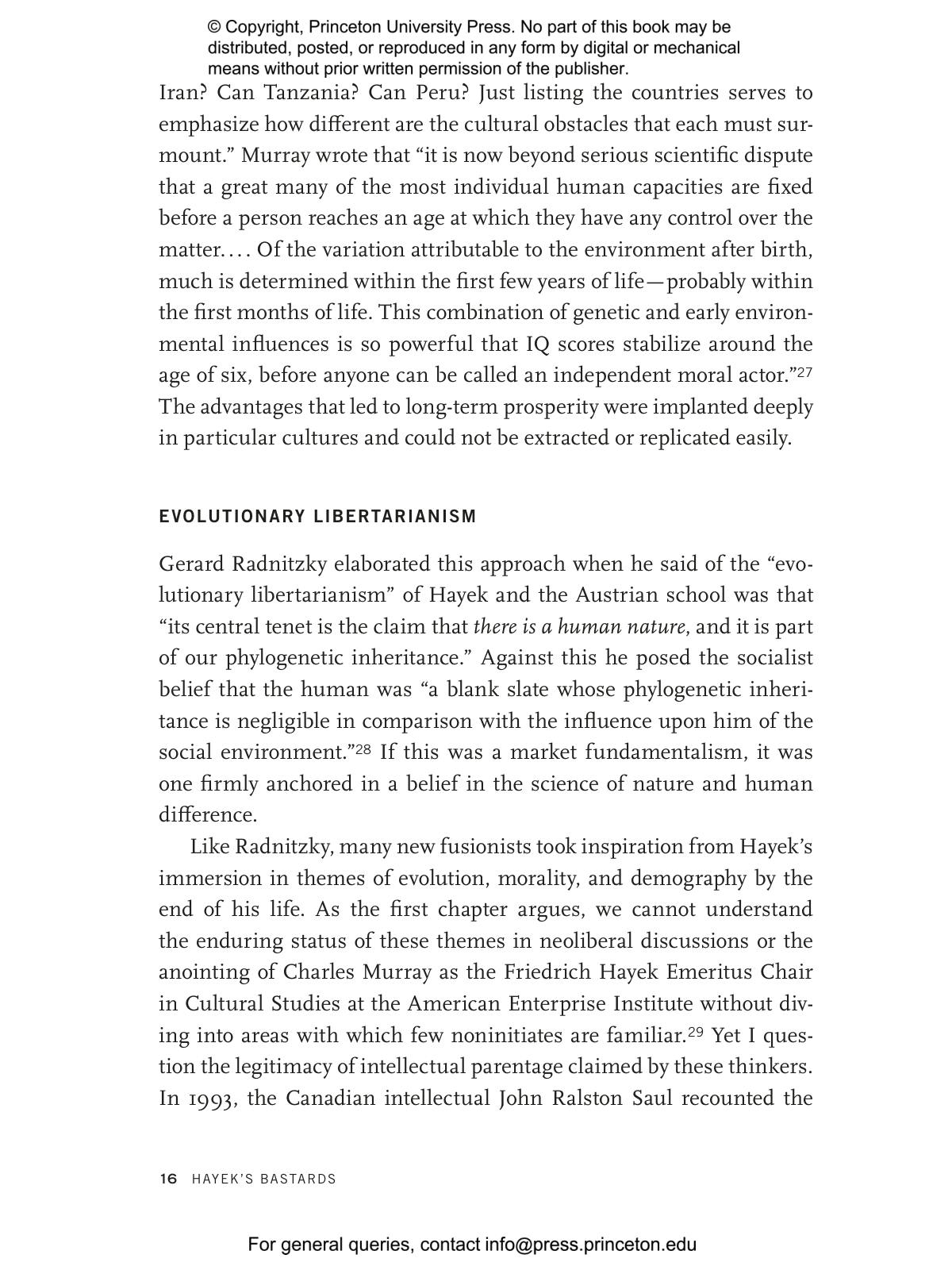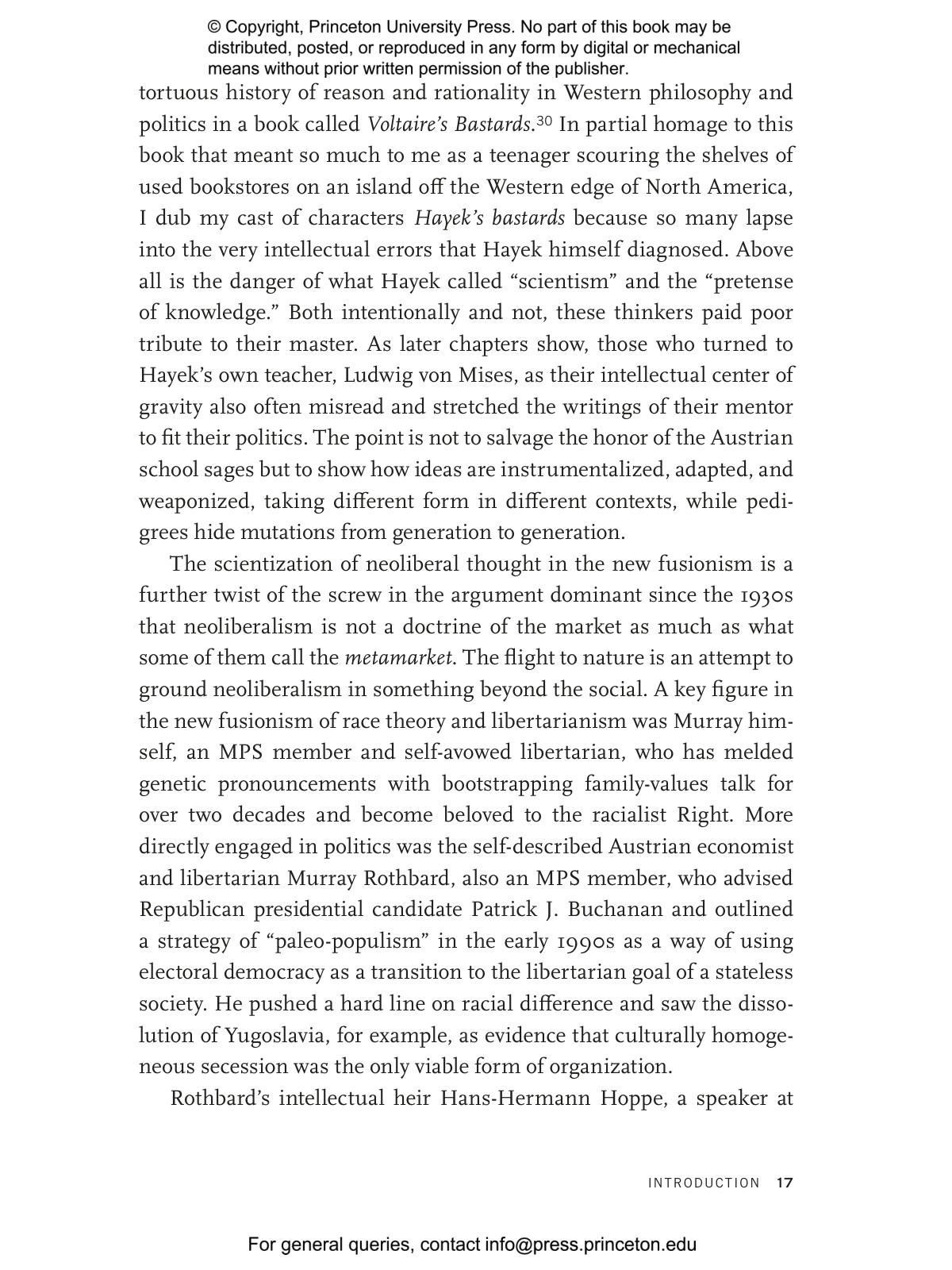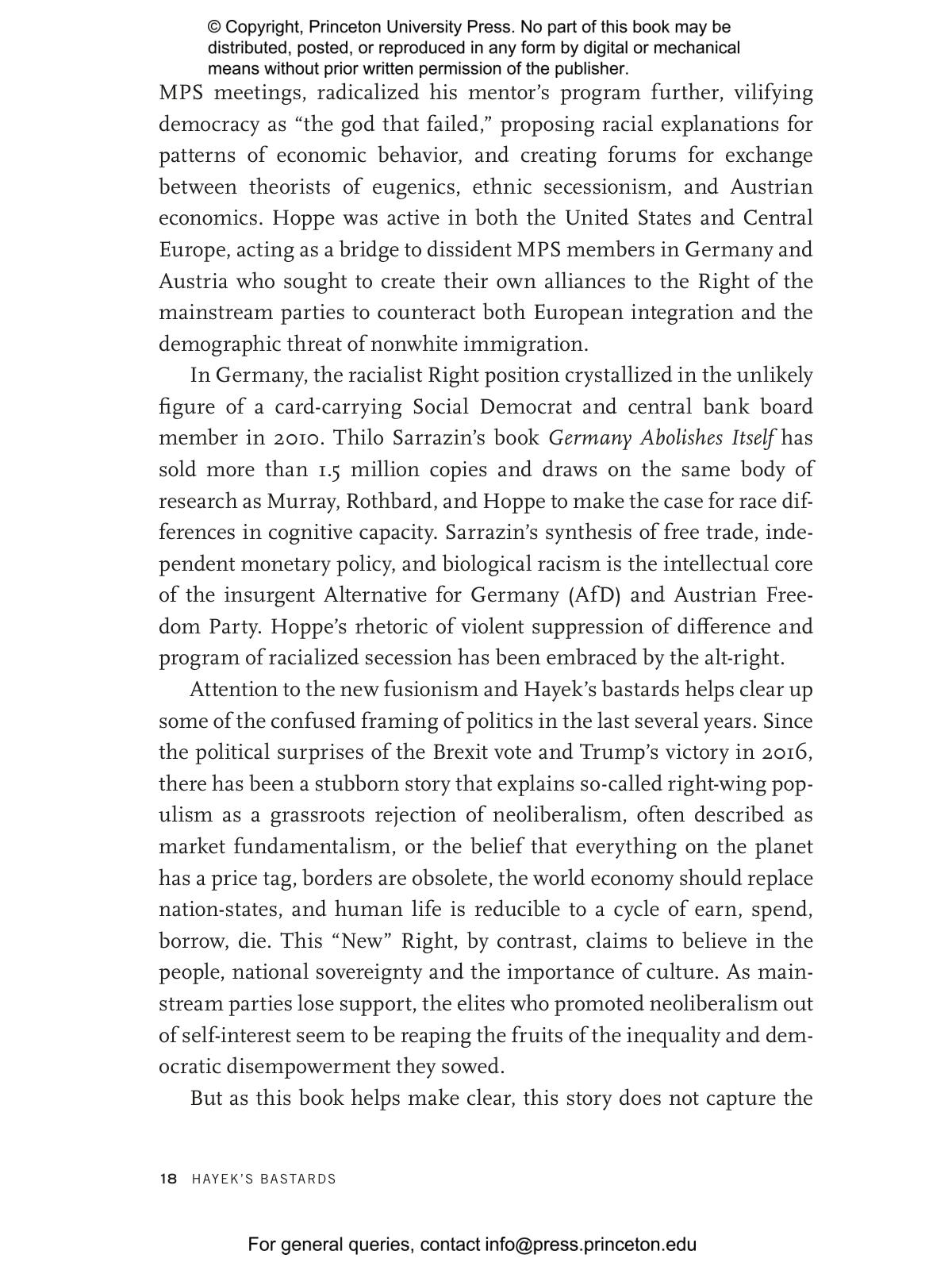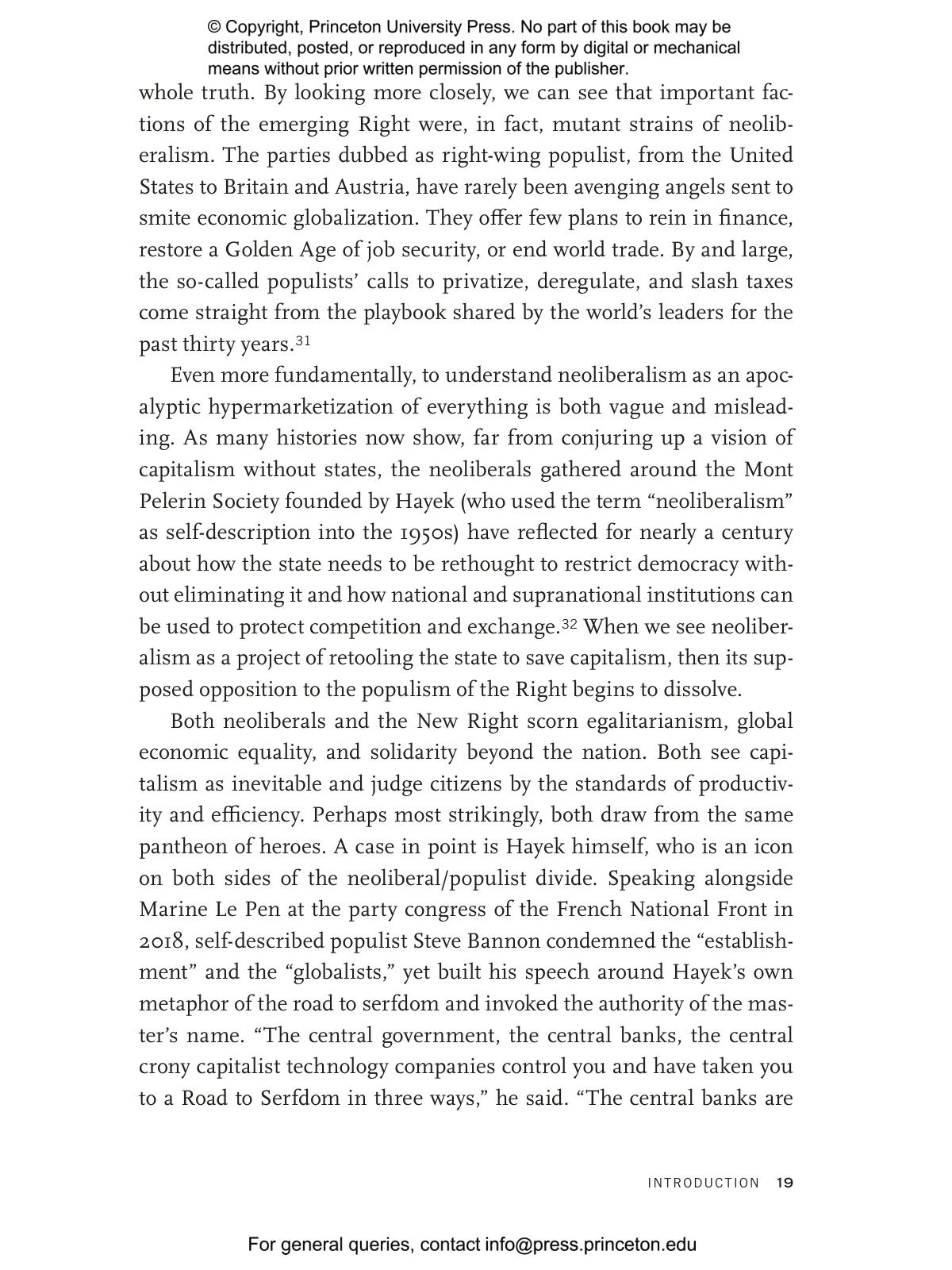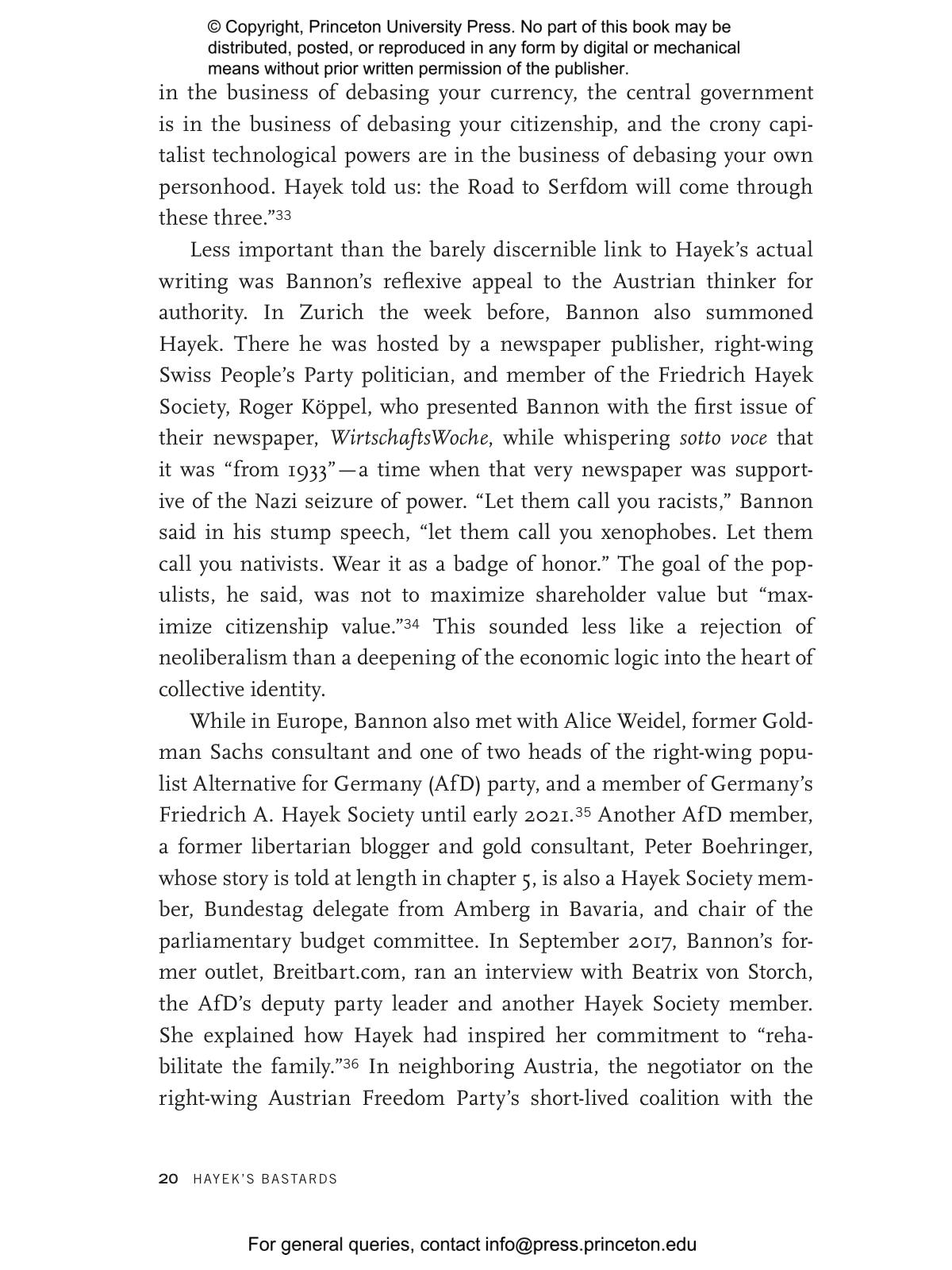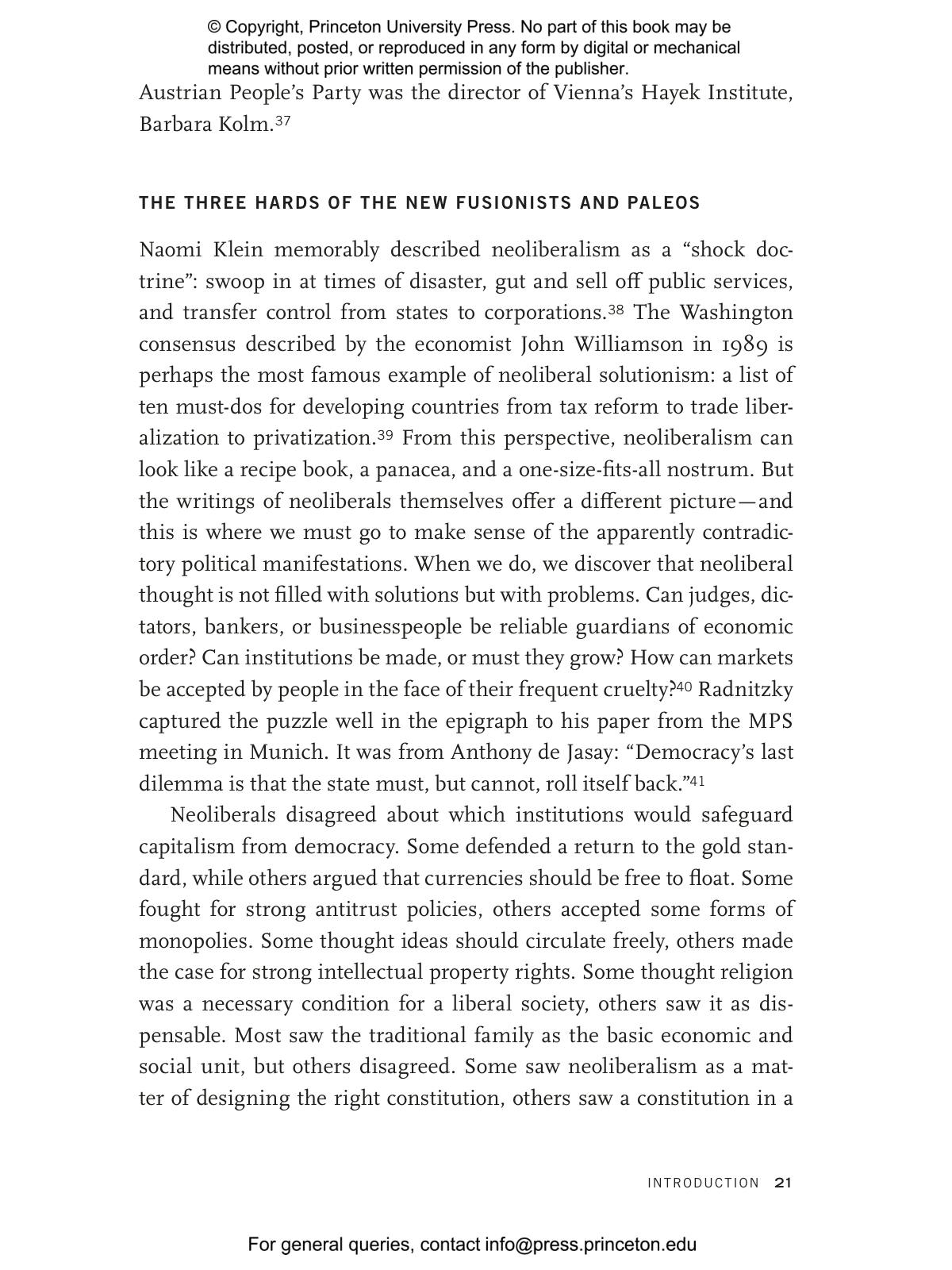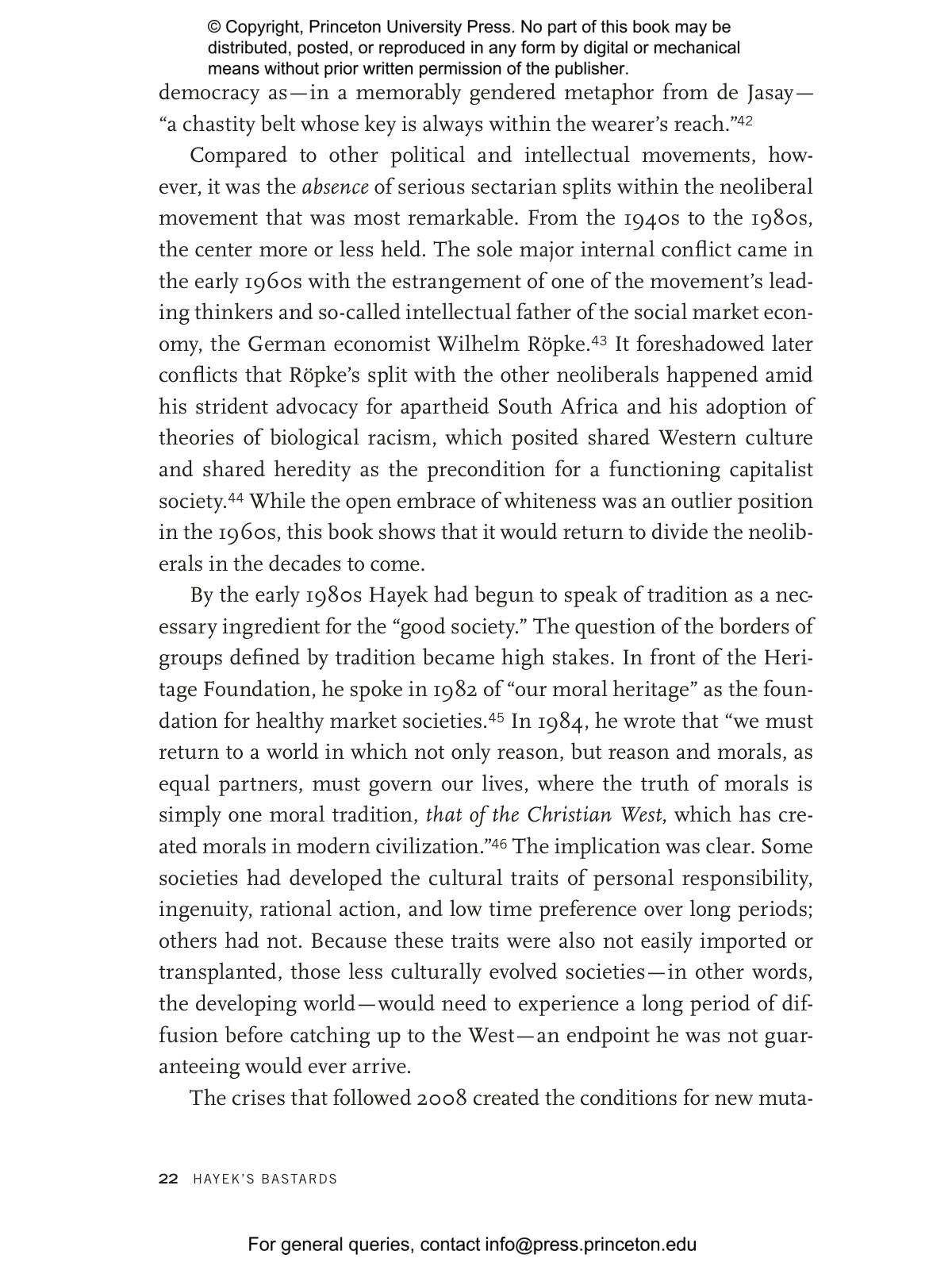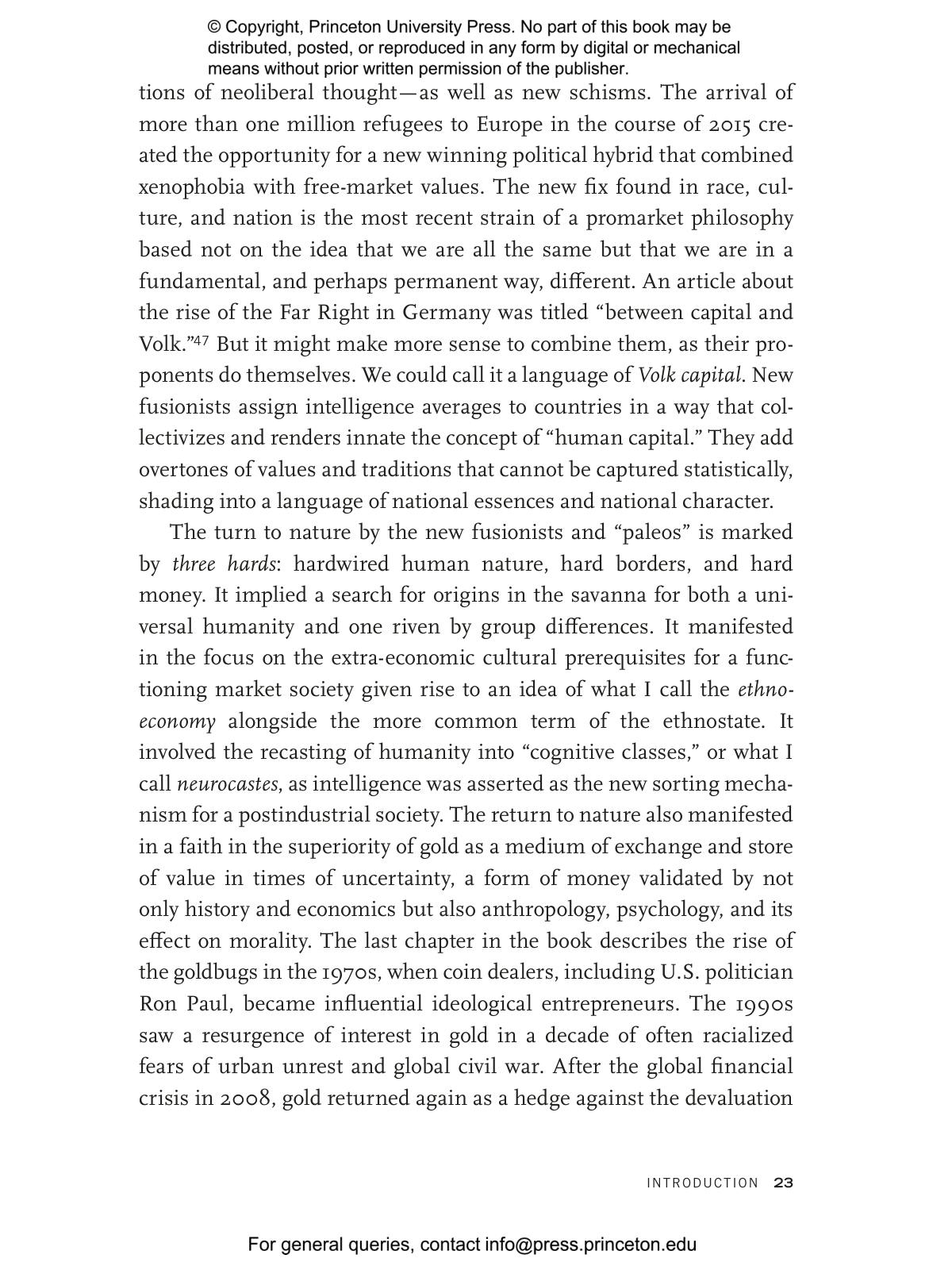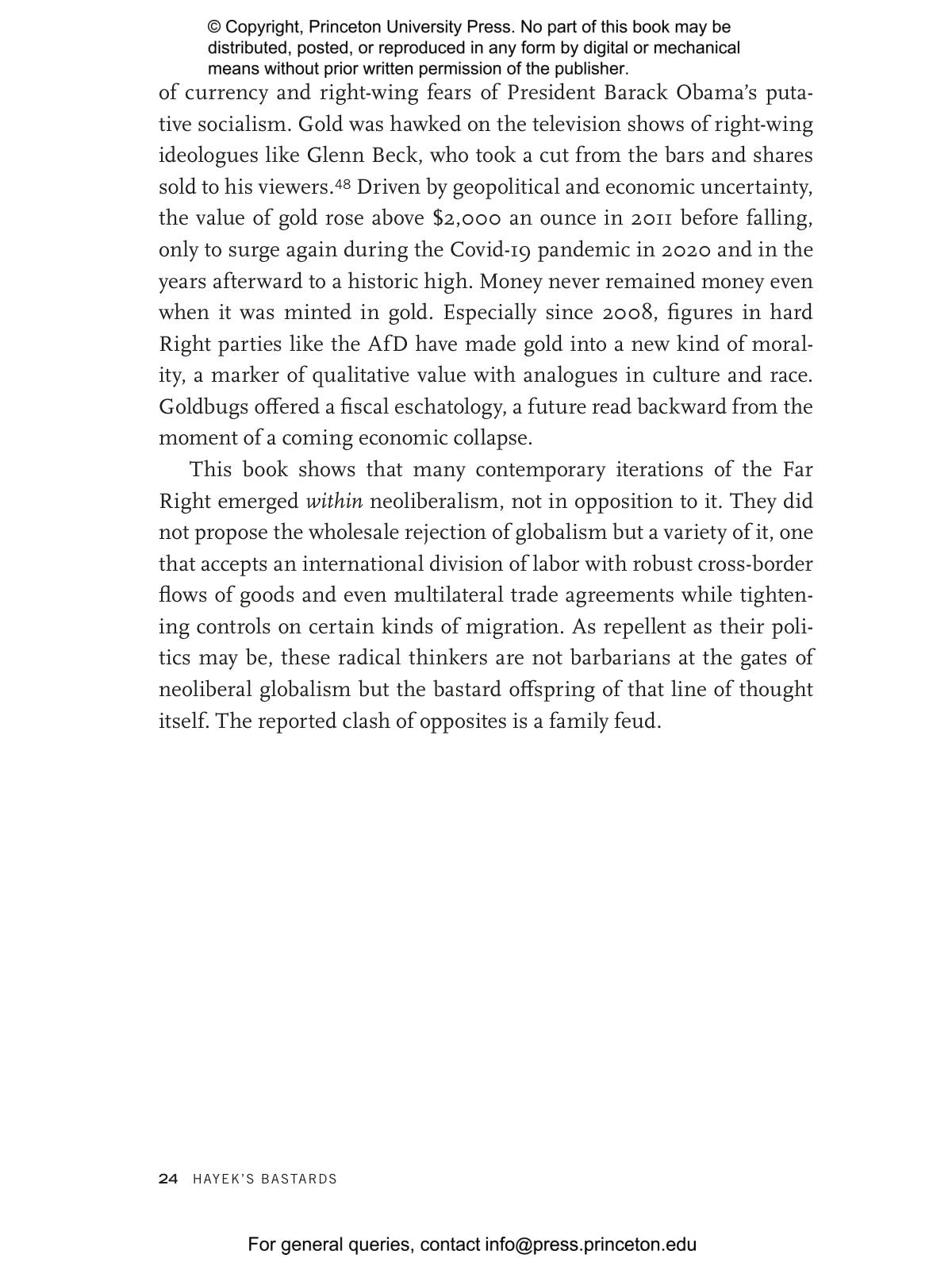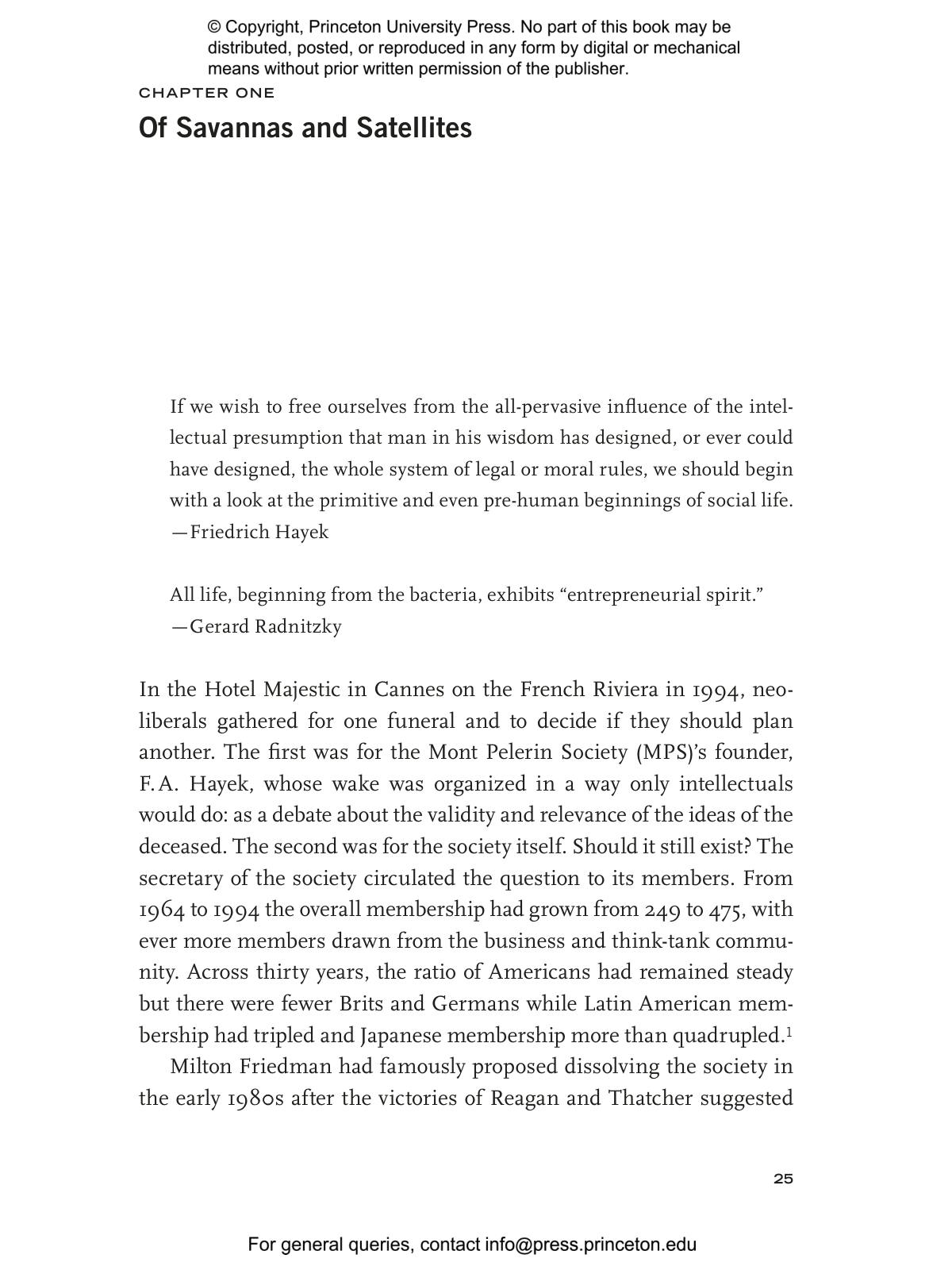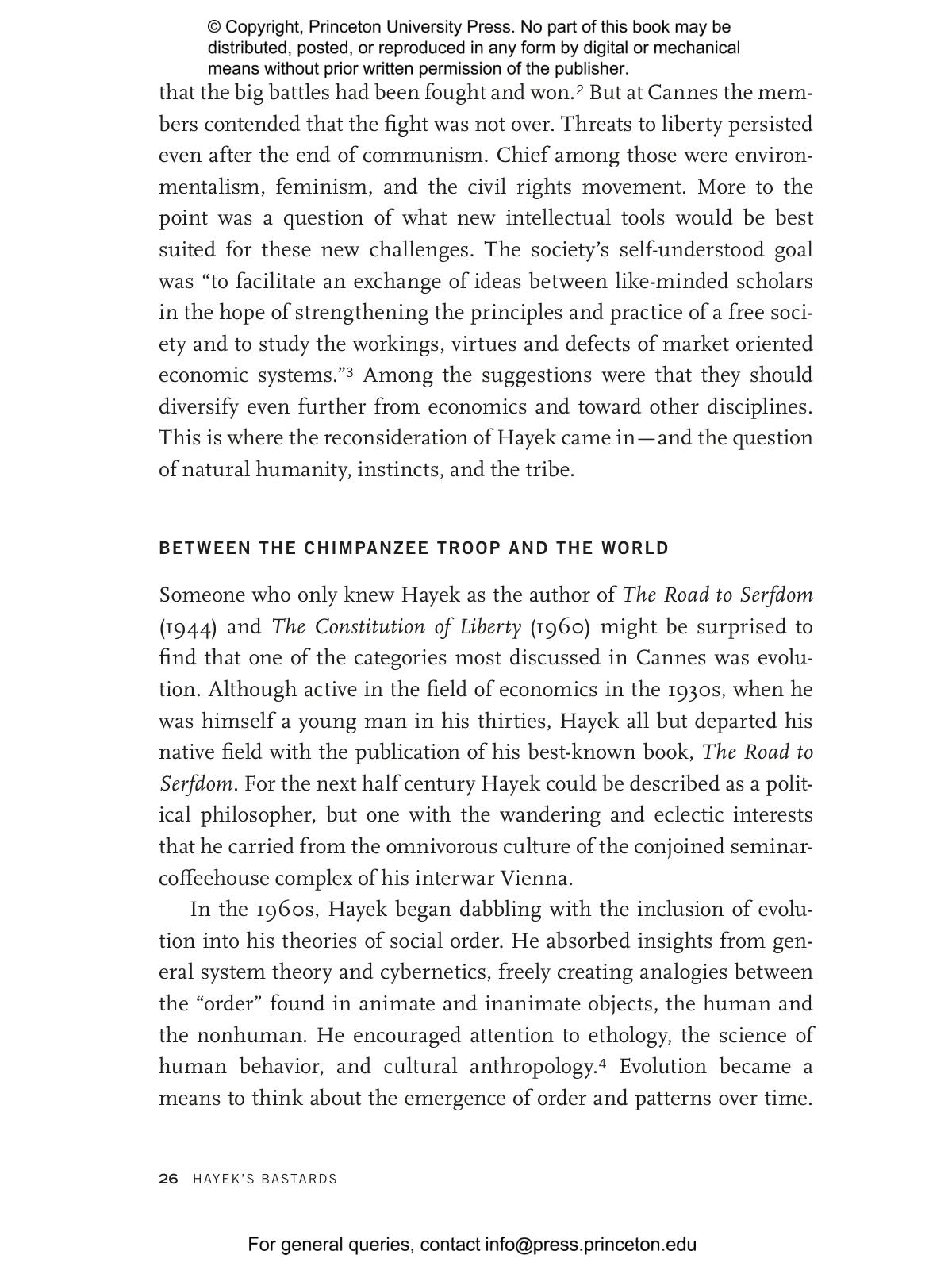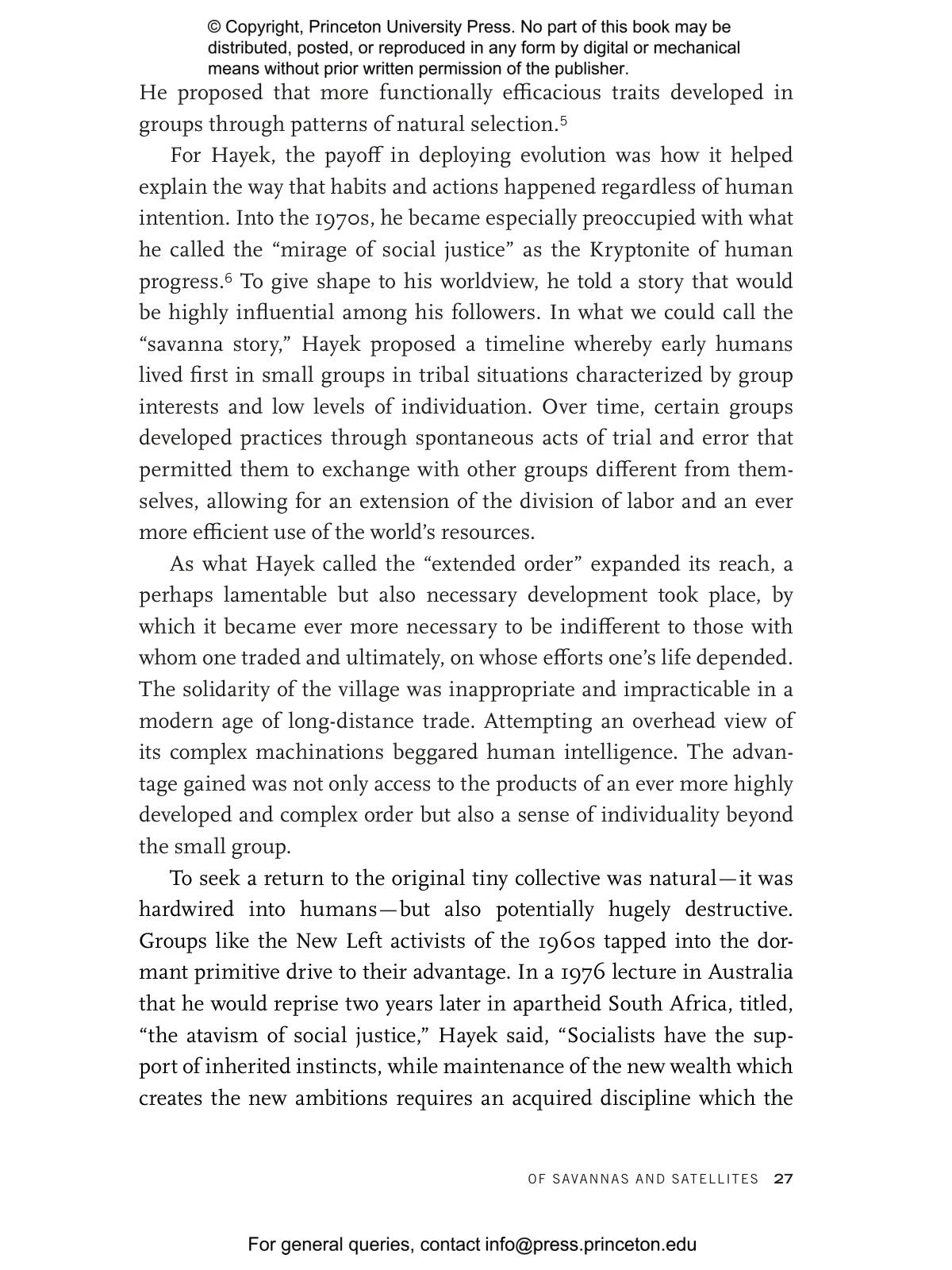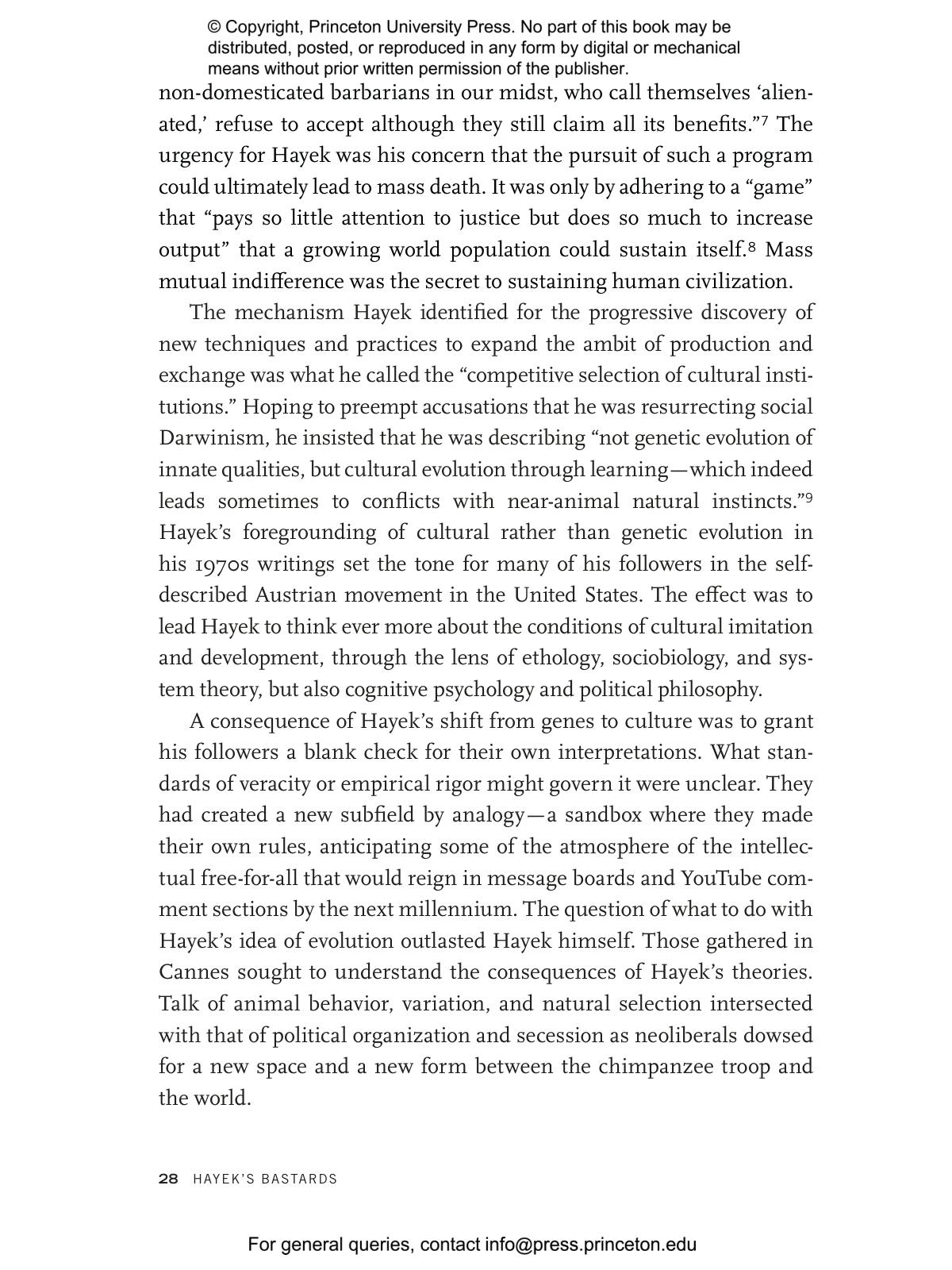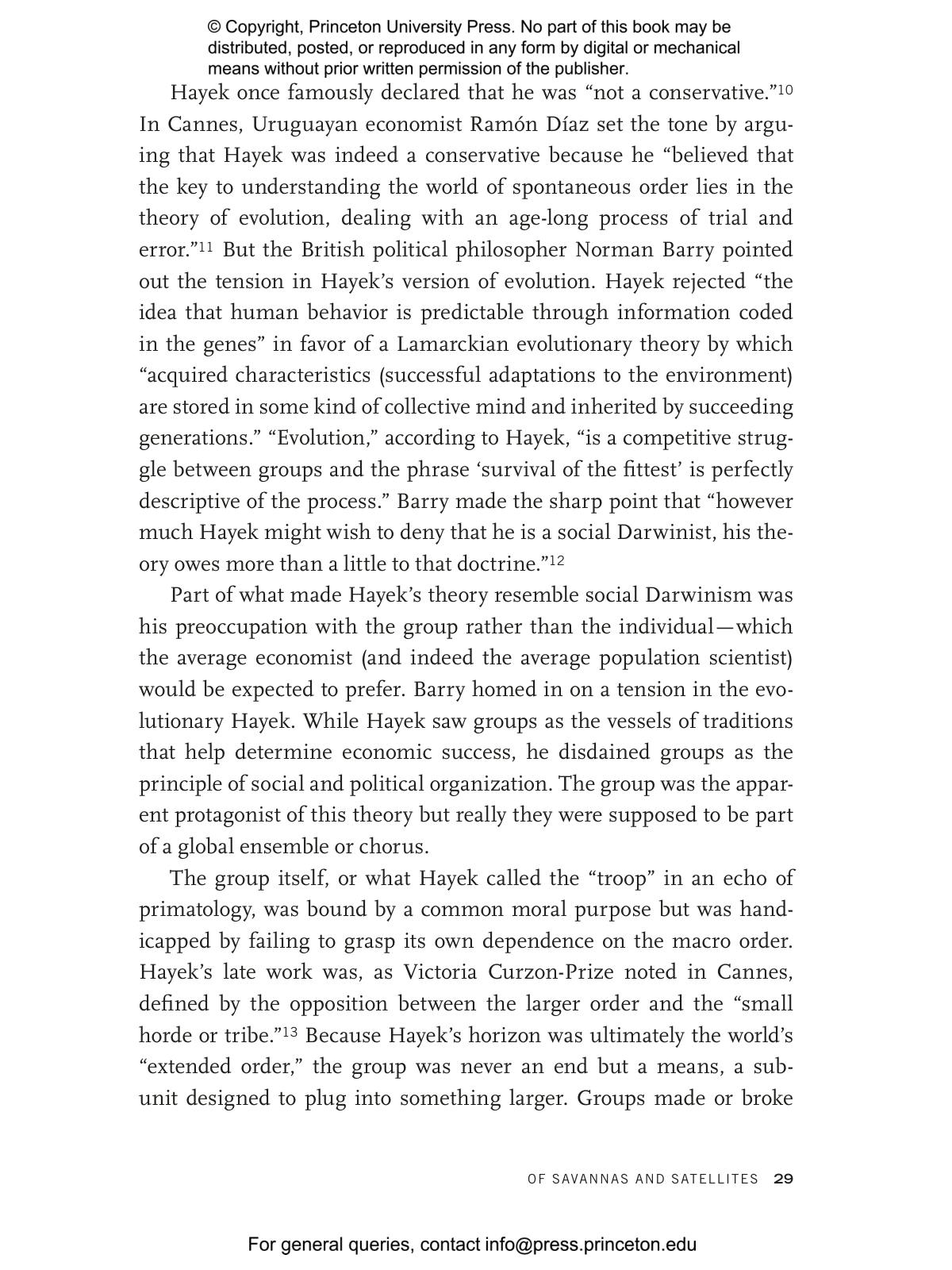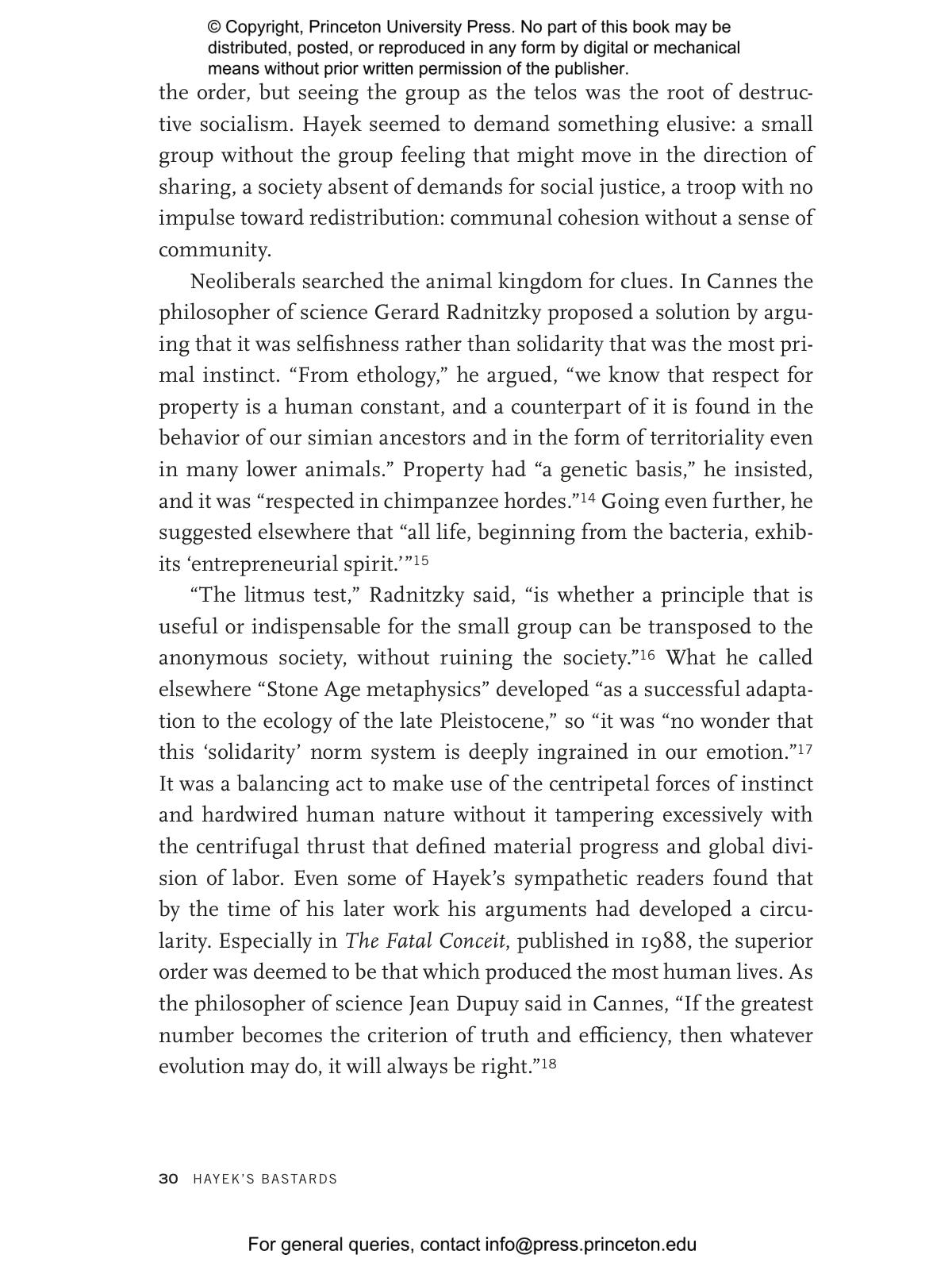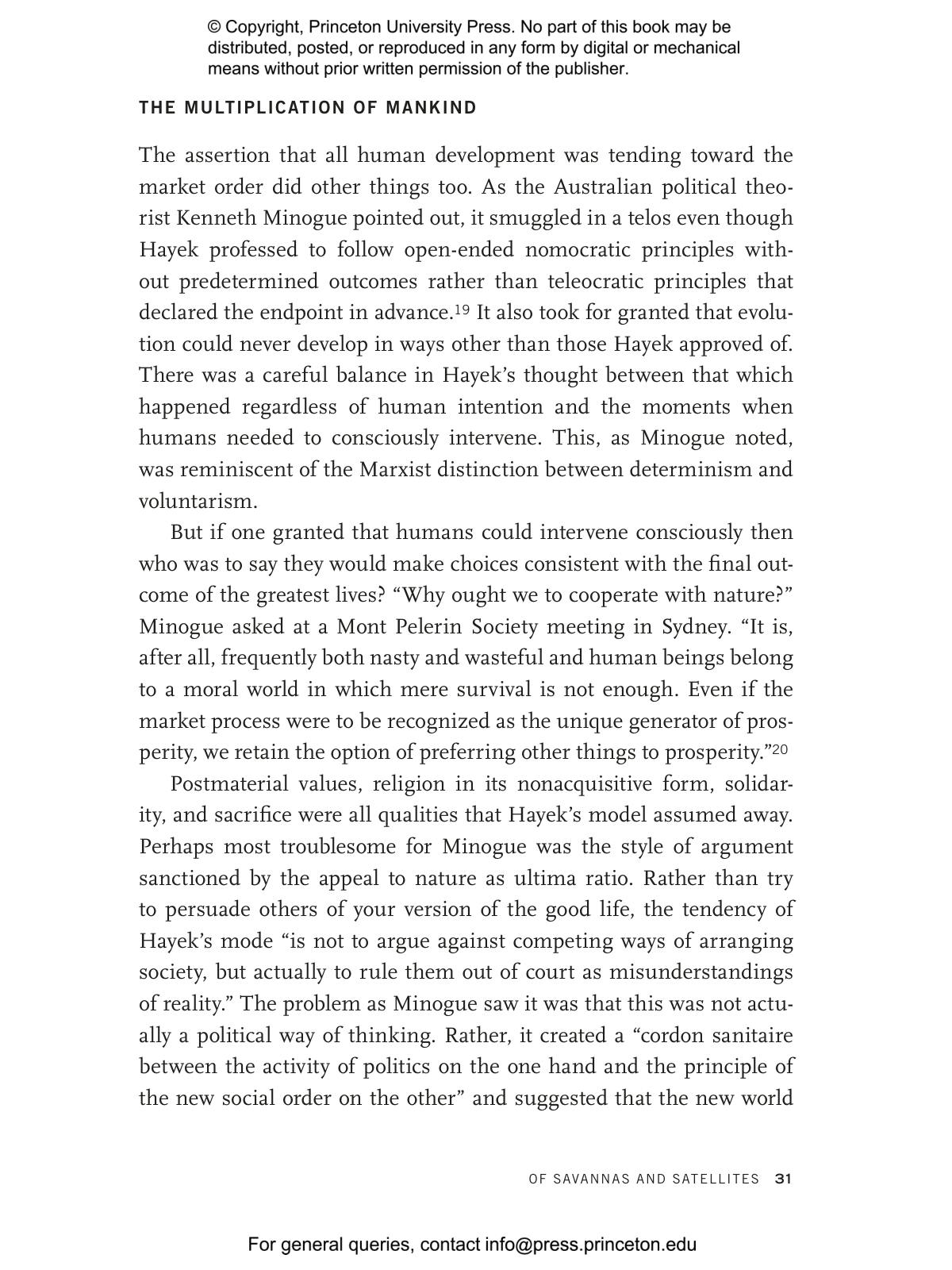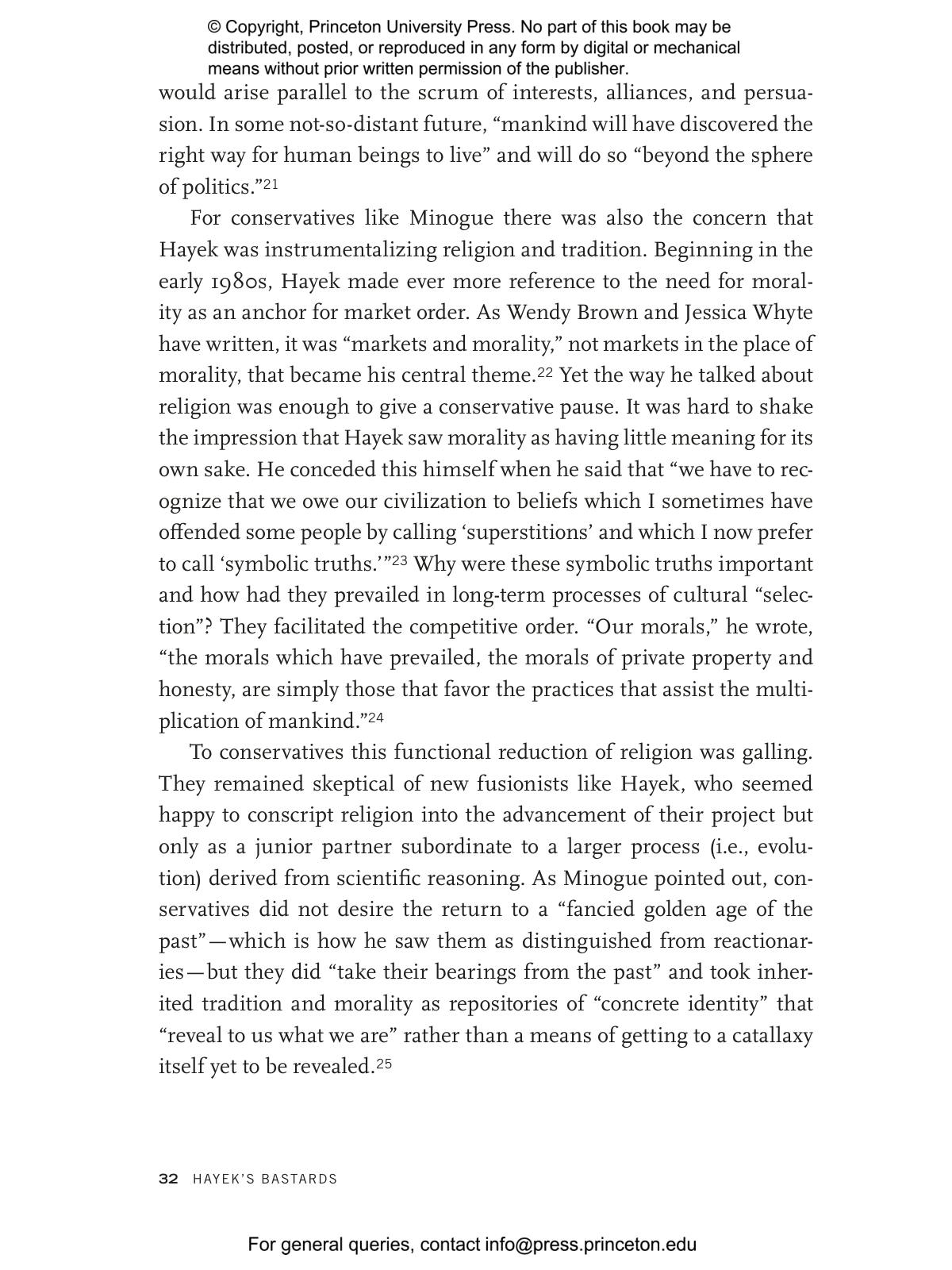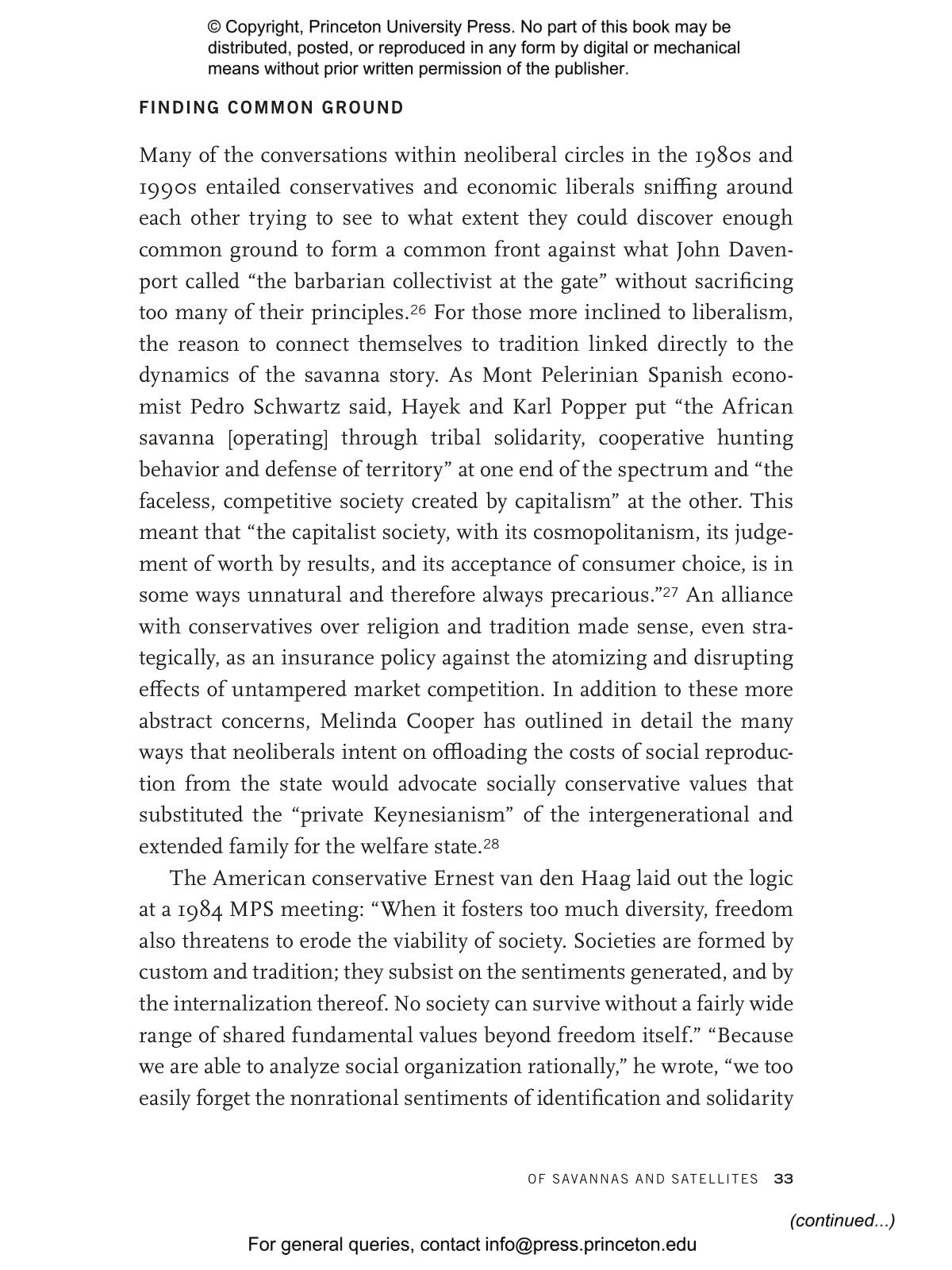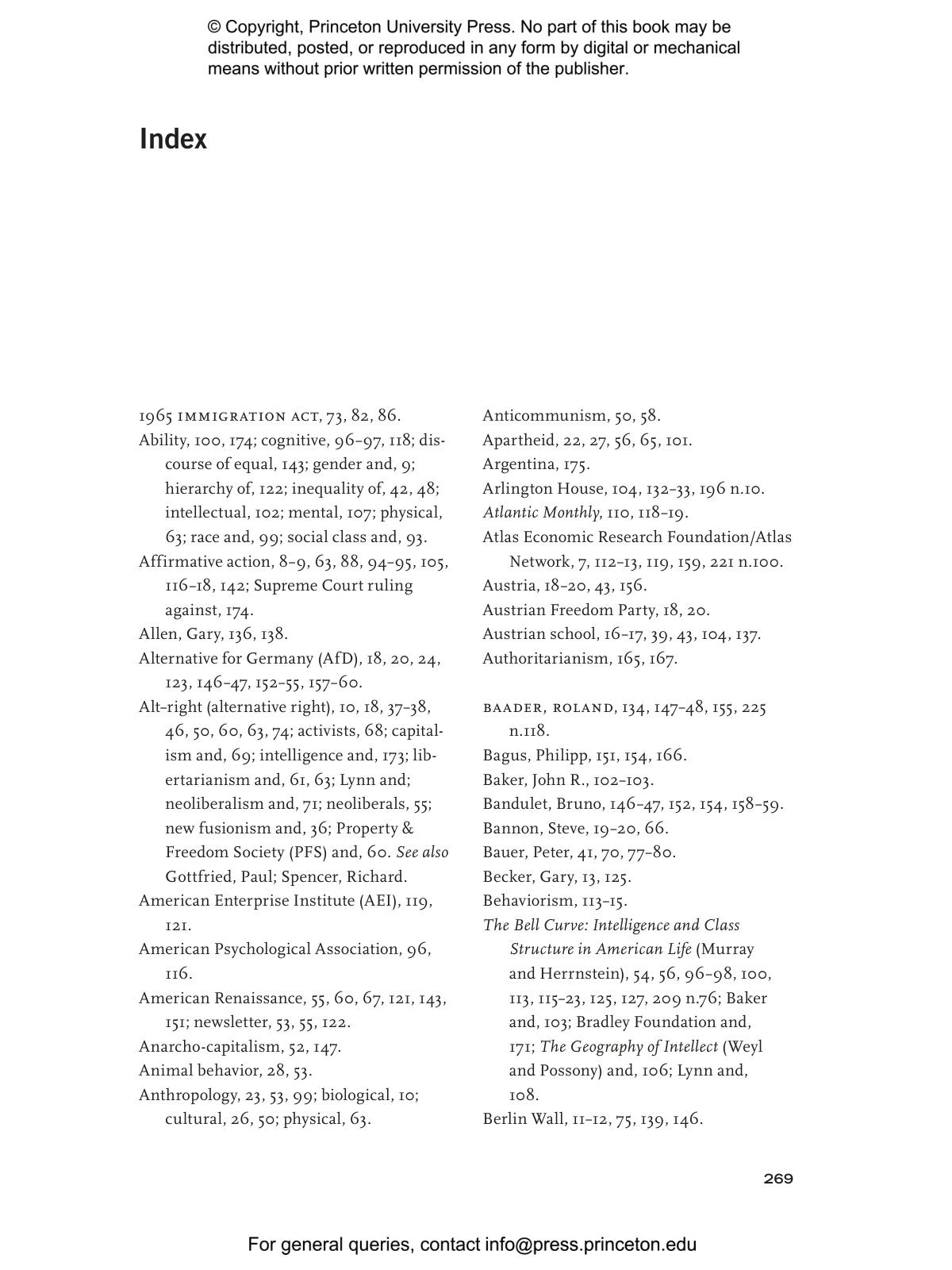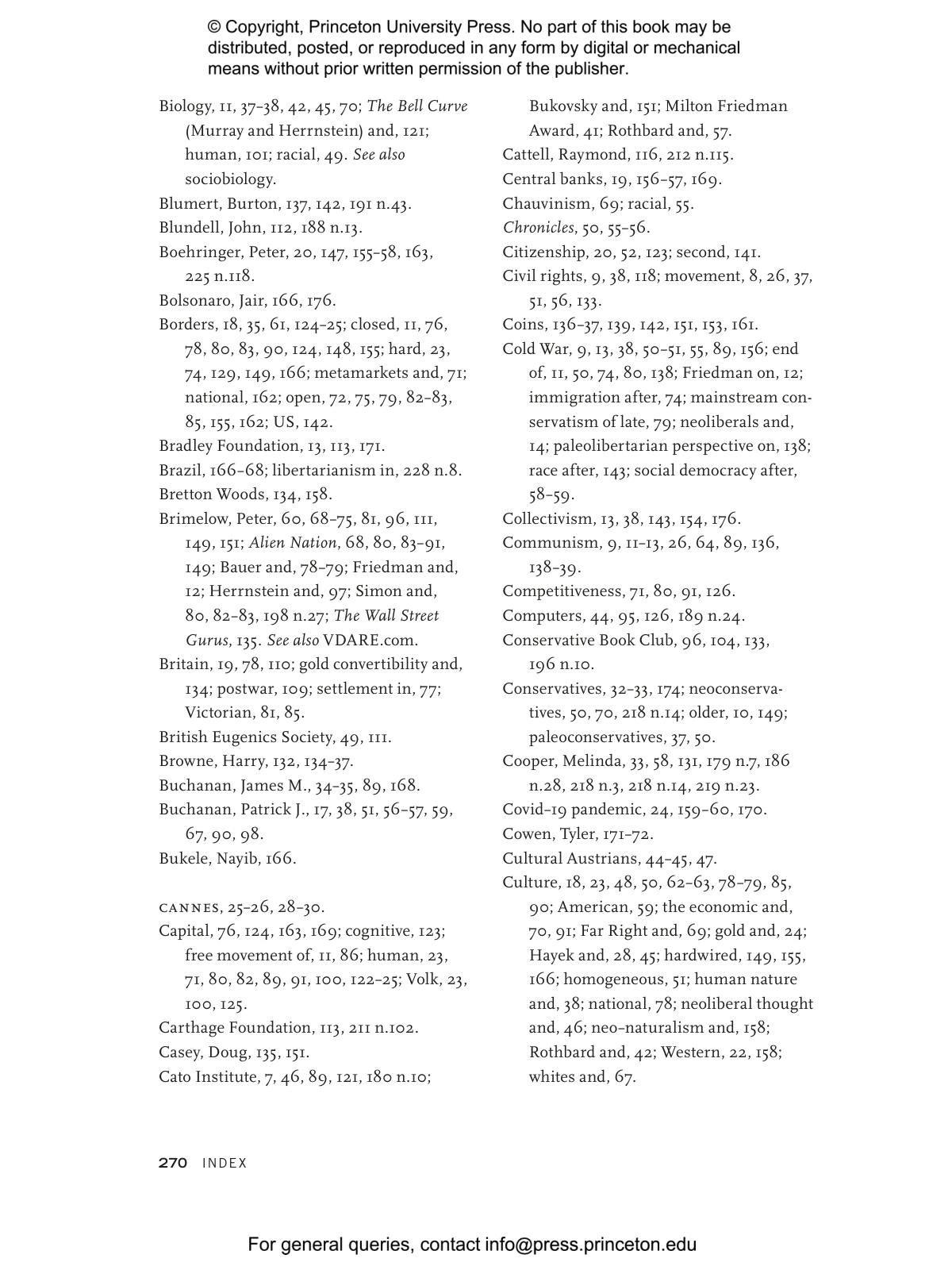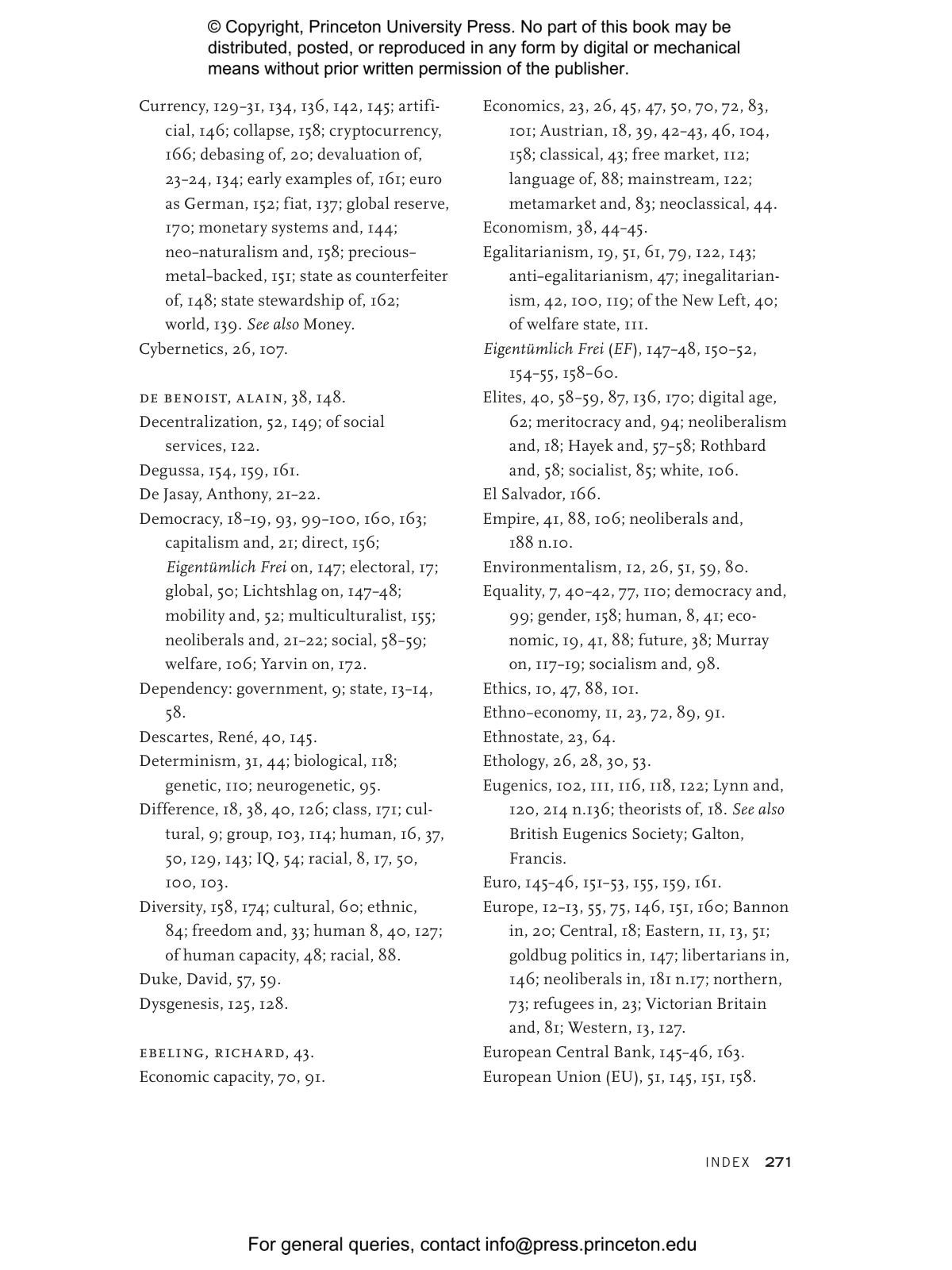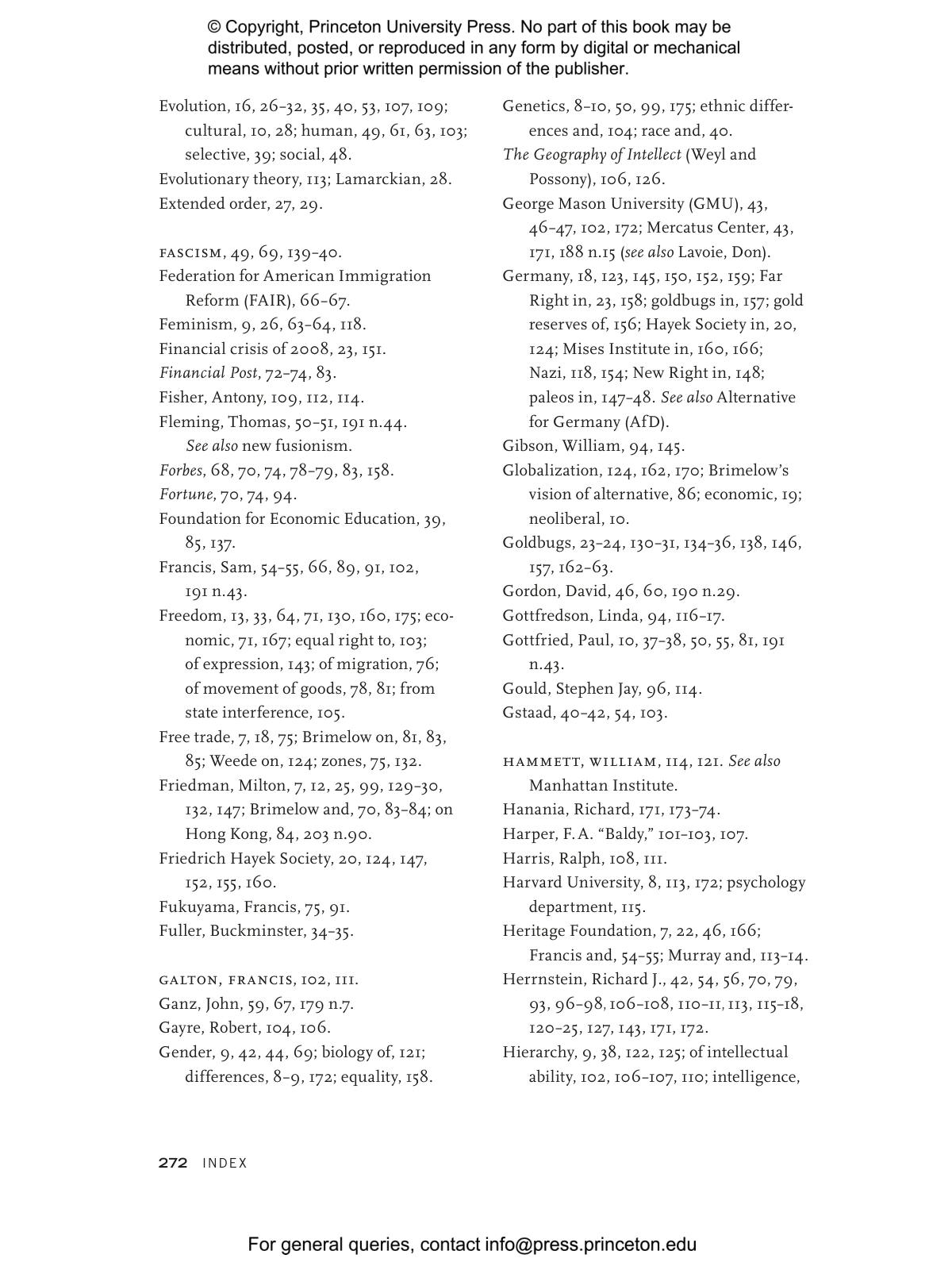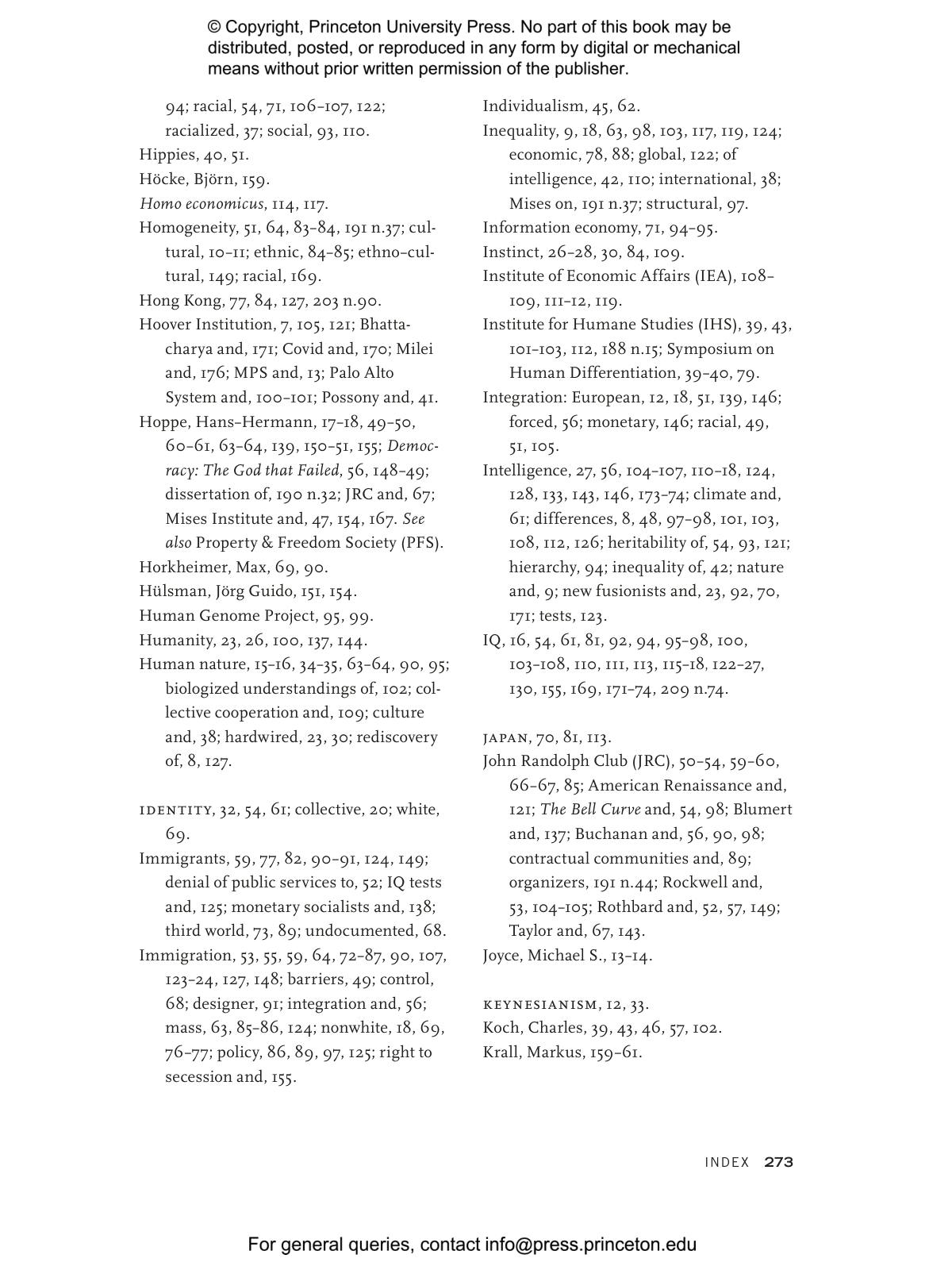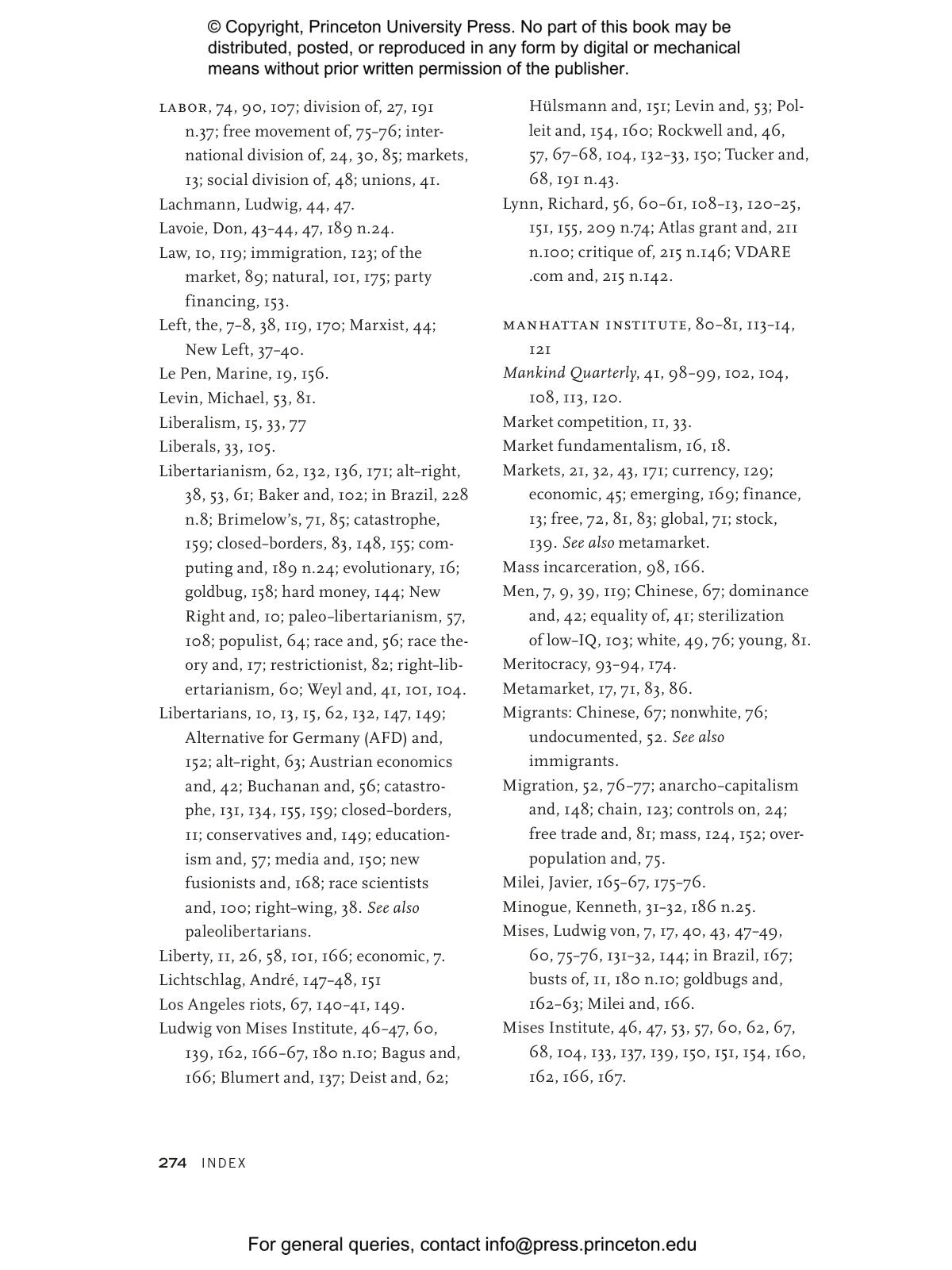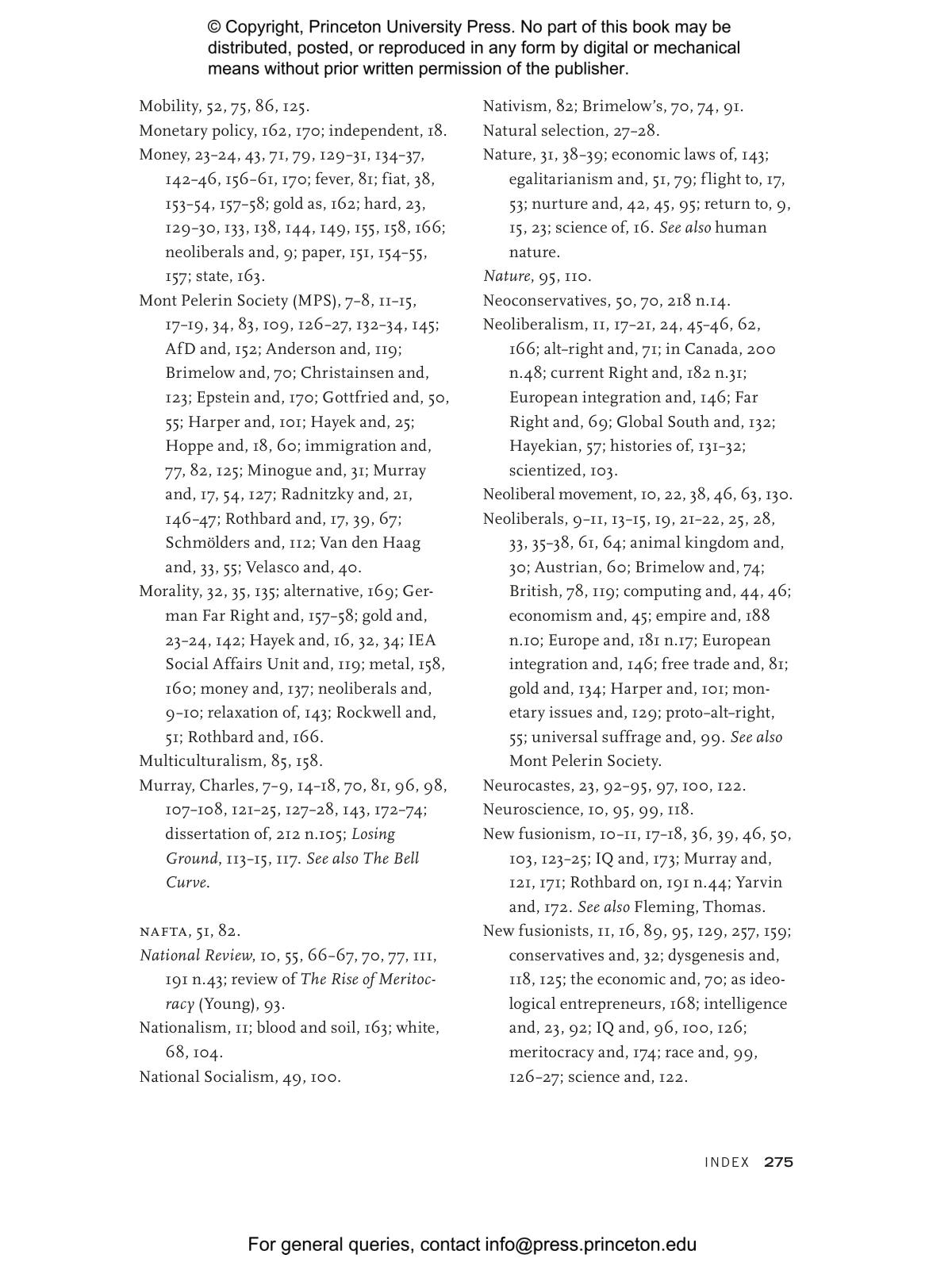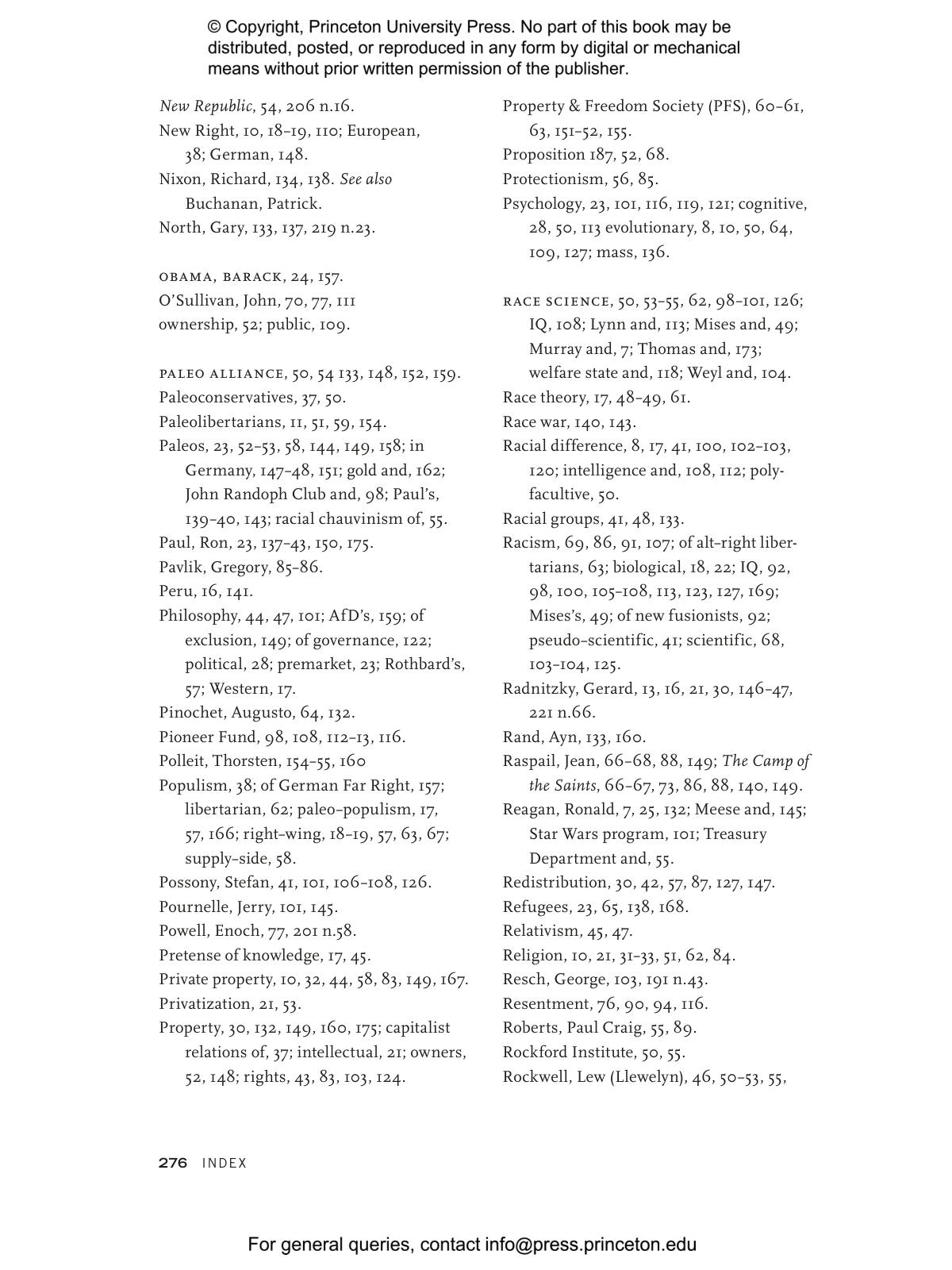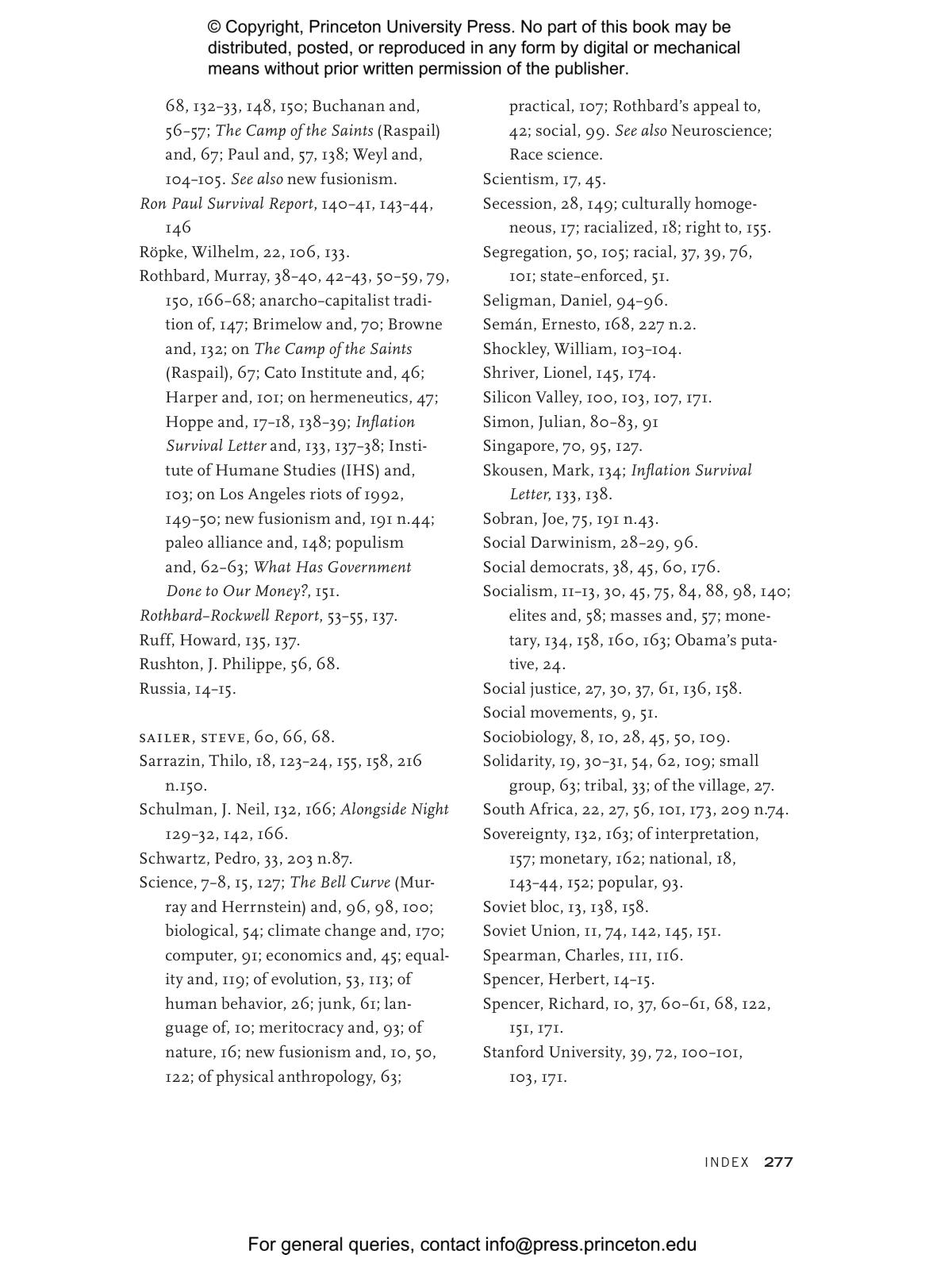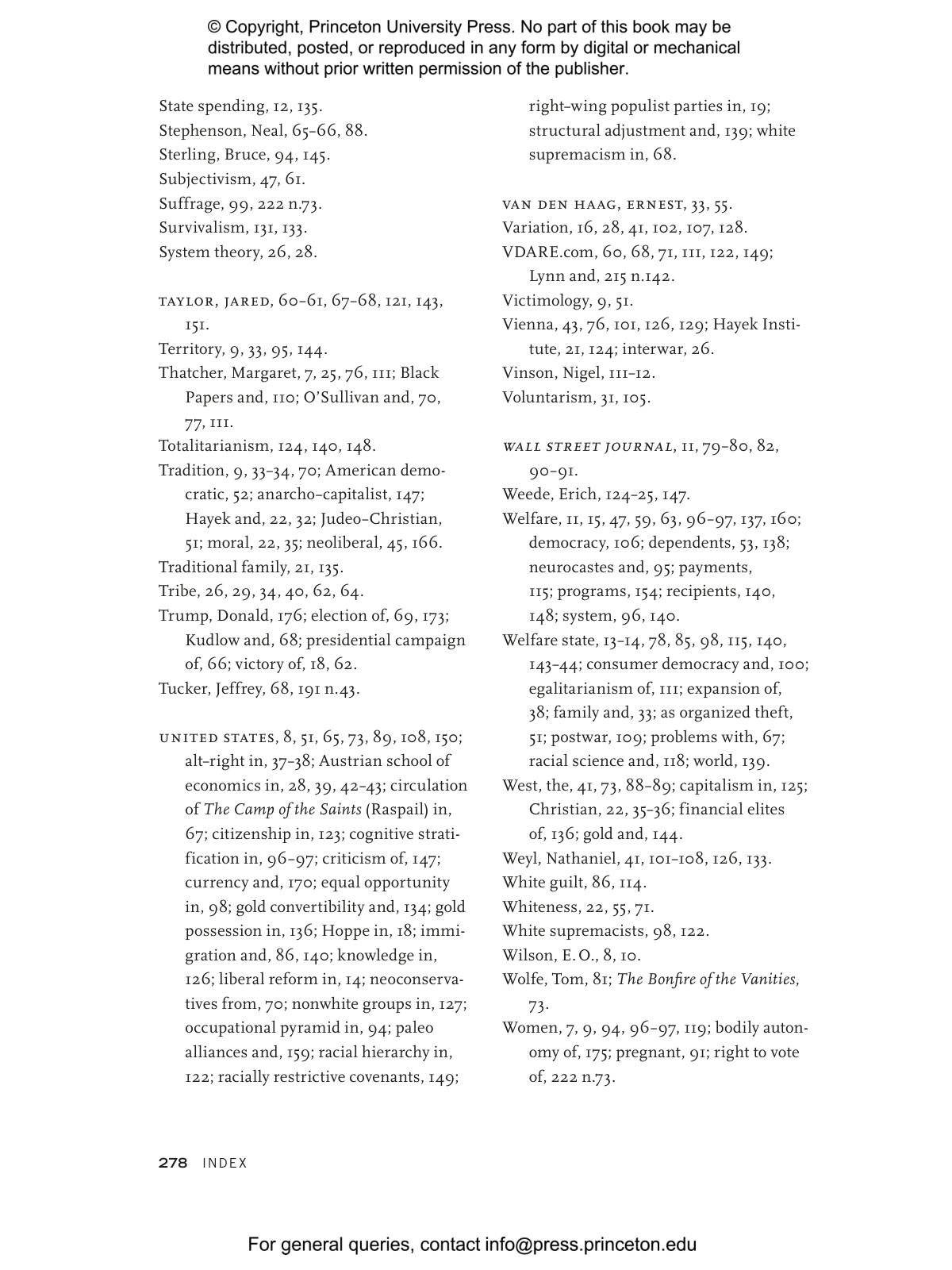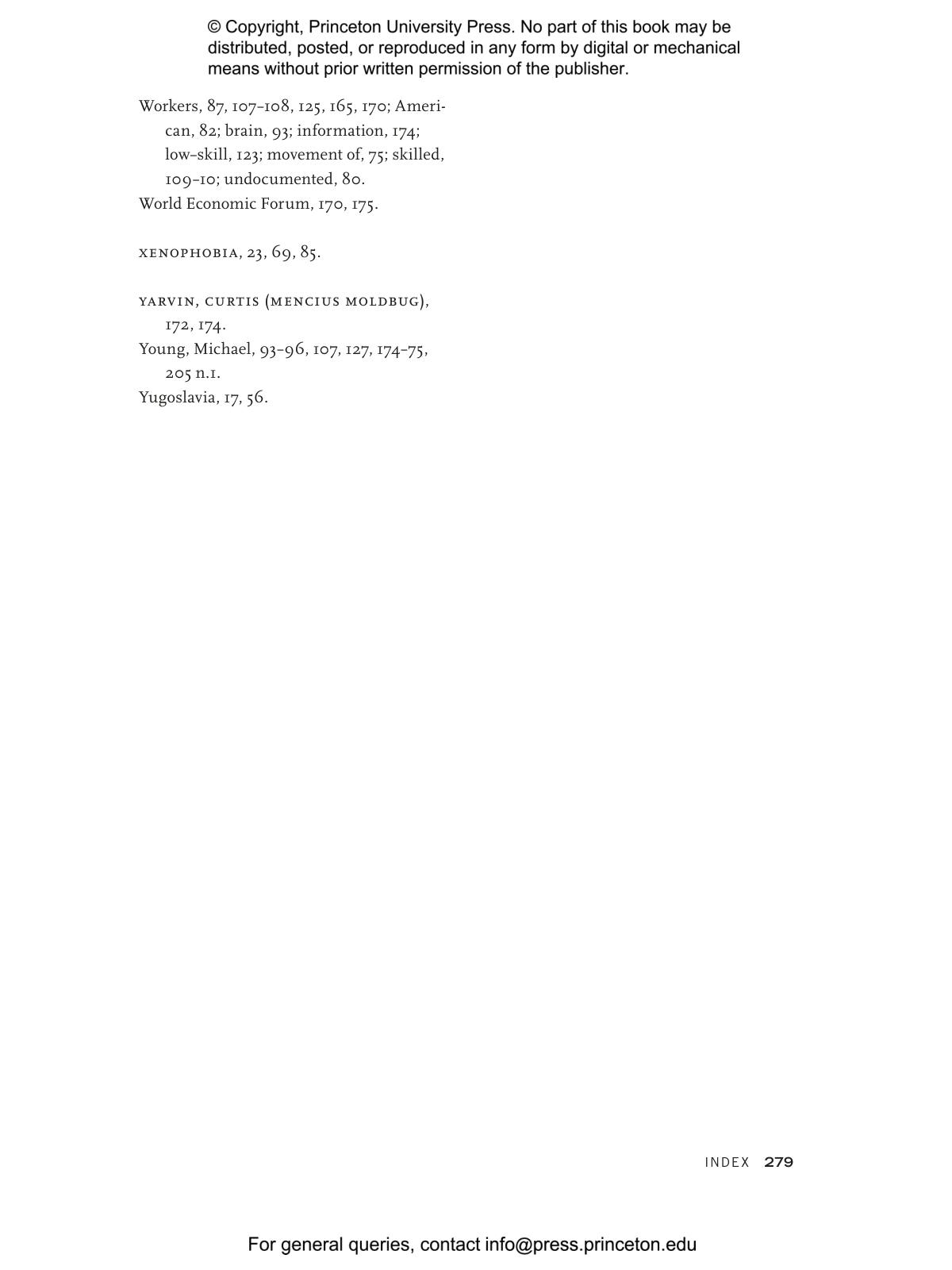Neoliberals should have seen the end of the Cold War as a total victory—but they didn’t. Instead, they saw the chameleon of communism changing colors from red to green. The poison of civil rights, feminism, and environmentalism ran through the veins of the body politic and they needed an antidote.
To defy demands for equality, many neoliberals turned to nature. Race, intelligence, territory, and precious metal would be bulwarks against progressive politics. Reading and misreading the writings of their sages, Friedrich Hayek and Ludwig von Mises, they articulated a philosophy of three hards—hardwired human nature, hard borders, and hard money—and forged the alliances with racial psychologists, neoconfederates, ethnonationalists, and goldbugs that would become known as the alt-right.
Following Hayek’s bastards from Murray Rothbard to Charles Murray to Javier Milei, we find that key strains of the Far Right emerged within the neoliberal intellectual movement not against it. What has been reported as an ideological backlash against neoliberal globalization in recent years is often more of a frontlash. This history of ideas shows us that the reported clash of opposites is more like a family feud.
"Bracingly original. . . . Hayek’s Bastards demonstrates how a history of ideas can be riveting. Slobodian grounds intellectual abstractions in the lives of the people who espoused them. . . . Slobodian’s book offers an illuminating history to our current bewildering moment."—Jennifer Szalai, New York Times
"Indispensable. . . . Entertaining. Slobodian’s wry commentary offers welcome respite from both the difficulty and the moral odiousness of his subject."—Becca Rothfeld, Washington Post
"As Quinn Slobodian makes clear in his bracing history of the intellectual origins of the alt-right, the conventional story misses out big part of the picture."—David Runciman, London Review of Books
"With real empirical depth and analytical subtlety, Hayek’s Bastards traces the origins of today’s far-right to a split within neoliberalism, and a ‘new fusionism’ of liberal economy and hard-hereditarian ‘race science’ — and all is made clear. One of the sharpest guides to the new reaction, it also casts light on the seemingly contradictory formation of libertarian-authoritarianism, of free trade and closed borders, and of an extreme monetary populism that is also extremely deferential to the wealthy."—Richard Seymour
"Quinn Slobodian has established himself as one of the sharpest intellectual historians of neoliberalism."—Bartolomeo Sala, Jacobin
"A bravura performance of intellectual inquiry."—Publishers Weekly, starred review
"Fascinating. . . . Slobodian’s book draws our attention to what might appear an astonishing fact. . . that it has proven very easy to support capitalism while being hostile to other fundamental liberal liberties."—Matt McManus, Illiberalism
"Slobodian’s thesis is novel: he suggests that what is unfolding in Washington is the culmination of a strategic shift by neoliberal planners to achieve more populist support for their particular cause. . . . One of Slobodian’s key achievements. . . is in showing that the entire weight of the extraordinarily successful neoliberal project rests on a foundation of pseudoscientific mumbo-jumbo."—Dave Vetter, The Climate Laundry
"Slobodian marshals impressive archival research. . . . dazzling."—Aris Roussinos, Unherd
"A rousing relitigation of the 1990s’ ideological scorecard."—Jon Skolnik, Vanity Fair
"As always Slobodian takes us on a fascinating tour of the right-wing mind. But what I find truly compelling about his analysis [in Hayek’s Bastards] is the broader question that frames it: What happened to neoliberalism after the West’s victory in the Cold War with the Soviet Union in the 1990s and 2000s?"—Adam Tooze, Chartbook
"Slobodian charts clearly how today’s far right is simply a further degeneration from neoliberalism’s celebration of economic inequality and the primacy of economics as the measure of man. We are all living in a world being plundered by Hayek’s bastards now."—Ian Hughes, Irish Times
"Hayek’s Bastards is an important book. . . . As with Slobodian’s previous books, Hayek’s Bastards shows remarkable thoroughness in terms of research and in pursuing the connections among the thicket of figures populating the netherworld of the new fusionist right. Slobodian has provided his readers with nothing less than a counter-history of the nexus of politics, economics, and ideology in our world. The results are breathtaking but also terrifying."—John Foster, The Battleground
"Excellent. . . . A painstakingly detailed account of the origins of the modern alt-right, Slobodian examines what he calls a 'frontlash' against neoliberal globalization originating in the immediate aftermath of the end of the Cold War."—Kristen R. Ghodsee, Los Angeles Review of Books
"A creative and engaging intellectual detective story that cuts through the far right’s smoke-and-mirrors claims of rupture and novelty, tracing the movement's deep neoliberal roots and exposing a shared set of supremacist beliefs about which lives have value and which lives do not. Ideas have consequences and very few scholars take the history of ideas as seriously as Slobodian, even when the ideas themselves are absurd, patently false, and deeply dangerous.” – Naomi Klein, author of Doppelganger and The Shock Doctrine
“The brilliant Quinn Slobodian has done it again: overturned orthodoxy on the history of neoliberalism by paying attention to its fissures, mutations, and ideological foundations. Neoliberals confessed that tearing down the Berlin Wall did not address the real threat to liberty: welfare, immigrants, and demands for racial, gender, disability, and environmental justice. Anyone who believes neoliberal ideology is dead must read this book. Thanks to the Charles Murrays, Murray Rothbards, Peter Brimelows, and Richard Spencers of the world, it is alive and well in the alt-Right and the self-proclaimed cognitive elite bent on restoring the natural order of things in order to make the West Great Again.” – Robin D. G. Kelley, author of Freedom Dreams: The Black Radical Imagination
“In this work of historical erudition and sharp political analysis, Quinn Slobodian explains how the myth of neoliberal freedom can be sustained only through a deeply illiberal world view. Through a painstaking reconstruction of how Hayek's offspring appeal to science served to naturalize hierarchy, and resist the calls for social equality, we come to see how rightwing authoritarianism emerged not as an alternative to neoliberalism but as its brainchild. An essential read to understand the times in which we live.” – Lea Ypi, author of Free: Coming of Age at the End of History


